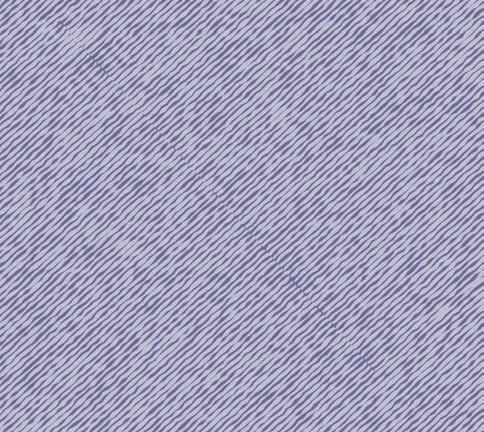



ISSUE 1499 JAN 7ND '23 ג"פשת תבט ד"י PARSHAT VAYECHI ה"ב OU ISRAEL 02-560-9100 | TorahTidbits.com | ADVERTISING 02- 560-9125 יחיו תשרפ YERUSHALAYIM IN/OUT TIMES FOR SHABBAT PARSHAT VAYECHI CANDLES 4:14PM • HAVDALA 5:31PM • RABBEINU TAM 6:08PM In Challenging and Fruitful Periods Rabbi Shalom Rosner Rav Kehilla, Nofei HaShemesh page 28 רשע םינש לארשי יטבש הלא־לכ חכ :טמ תישארב New Column! OU-JLIC Orthodox Union Heshe And Harriet Seif Jewish Learning Initiative On Campus page 54

2 TORAH TIDBITS 1499 / VAYECHI 5783 Table of Contents This week's Torah Tidbits cover image! About the Cover: The Twelve Tribes - a work by the mosaic artist Yael Portugaz in the Beit Habad Gallery, in the Jewish Quarter of Jerusalem www.wikipedia.org KIDDUSH LEVANA Last Opportunity to Say Kiddush Levana until 14 Tevet/ Jan. 6 all night 04Dear Torah Tidbits Family Rabbi Avi Berman 08Shared Strength Rabbi Moshe Hauer 10Aliya By Aliya Sedra Summary Rabbi Reuven Tradburks 16Changing the World Rabbi Dr. Tzvi Hersh Weinreb 20On Not Predicting the Future Rabbi Lord Jonathan Sacks zt"l 26Probing The Prophets Rabbi Nachman Winkler 28In Challenging and Fruitful Periods Rabbi Shalom Rosner 30Bed’s Beauty Rebbetzin Shira Smiles 32OU Israel Schedule 38Alive Rabbi Judah Mischel 40Simchat Shmuel Rabbi Sam Shor 42The Shell of History Rabbi Moshe Taragin 46Authentic Jewish Creativity Rabbi Aaron Goldscheider 50Towards Meaningful Tefila Rebbetzin Zemira Ozarowski 52The Y- Files Weekly Comic Netanel Epstein 54OU-JLIC Jordan Landes 58Torah 4 Teens By Teens Rabbi Yosef Ginsberg // Aliyah Derfler *Rabbi Mann, Rabbi Bloom, Menachem Persoff, and Rabbi Weitzman's Divrei Torah can be found online at Torahtidbits.com
CANDLES
VAYECHI
Yerushalayim / Maale Adumim 4:14
SH'MOT HAVDALA
Havdala Candles
5:31
5:36 4:20 5:39 4:38 5:34 Aza area (Netivot, S’derot, Et al) 4:32
Beit Shemesh / RBS 4:33
5:37 4:39 5:32
JERUSALEM
Ranges 11 days Wed - Shabbat Jan. 4-14 / 11-21 Tevet
Earliest Tallit and Tefillin 5:45
Sunrise 6:39
Sof Zman Kriat Shema 9:11-9:14

Magen Avraham 8:33 - 8:35
Raanana/ Tel Mond/ Herzliya/ K. Saba 4:30
5:37 4:36 5:31 Gush Etzion 4:30 5:37 4:36 5:31
Modi’in / Chashmona’im 4:30
5:37 4:36 5:31
Sof Zman Tefila 10:02 - 10:05 (According to the Gra and Baal HaTanya)
Be’er Sheva 4:32
Rehovot 4:31
Petach Tikva 4:14
Ginot Shomron 4:29
Haifa / Zichron 4:18
Gush Shiloh 4:28
Tel Aviv / Giv’at Shmuel 4:30
Giv’at Ze’ev 4:29
Chevron / Kiryat Arba 4:30
Ashkelon 4:32
Yad Binyamin 4:31
Tzfat / Bik’at HaYarden 4:21
Golan 4:26
5:37 4:36 5:31
Netanya 4:30 5:39 4:38 5:33
5:38 4:37 5:32
5:37 4:20 5:31
5:36 4:35 5:30
5:35 4:24 5:30
5:35 4:34 5:30
5:37 4:36 5:32
5:36 4:35 5:31
5:37 4:36 5:31
5:39 4:38 5:33
5:38 4:37 5:32
5:33 4:27 5:27
5:33 4:32 5:27
Rabbeinu Tam (J'lem) - 6:08PM • next week - 6:14pm
to MyZmanim (20 min. before sundown in most cities, 40 min. in Yerushalyim and Petach Tikva, 30 min. in Tzfat/Haifa)
Chatzot (Halachic Noon) 11:44 - 11:48
Mincha Gedola (Earliest Mincha) 12:14 - 12:18
Plag Mincha 3:44 - 3:52
Sunset (Including Elevation) 4:53 - 5:01
Seymour J. Abrams • Orthodox Union Jerusalem World Center • Avrom Silver Jerusalem College for Adults • Wolinetz Family Shul • Makom BaLev • Birthright • Yachad • NCSY in Israel • JLIC in Israel • Pearl & Harold M. Jacobs ZULA Outreach Center • The Jack Gindi Oraita Program • OU Israel Kashrut
STUART HERSHKOWITZ, PRESIDENT OU ISRAEL Zvi Sand / Yitzchak Fund: Former Presidents, OU Israel | Rabbi Emanuel Quint z”l, Senior Vice President | Prof. Meni Koslowsky, Vice President


VAAD MEMBERS: Dr. Michael Elman | Moshe Kempinski | Sandy Kestenbaum | Norman Shmutter | Harvey Wolinetz RABBI AVI BERMAN, EXECUTIVE DIRECTOR, OU ISRAEL
David Katz, CFO, OU Israel | Chaim Pelzner, Director of Programs, OU Israel | Rabbi Sam Shor, Director of Programs, OU Israel Center Rabbi Sholom Gold, Dean, Avrom Silver Jerusalem College for Adults 22 Keren HaYesod <> POB 37015 <> Jerusalem 91370
phone: (02) 560 9100 | fax: (02) 561-7432 email: office@ouisrael.org website: www.ouisrael.org Founders and initial benefactors of the OU Israel Center: George and Ilse Falk a"h
OU Israel, Torah Tidbits does not endorse the political or halachic positions of its editor, columnists or advertisers, nor guarantee the quality of advertised services or products. Nor do we endorse the kashrut of hotels, restaurants, caterers or food products that are advertised in TT (except, of course, those under OU-Israel hashgacha). Any "promises" made in ads are the sole responsibility of the advertisers and not that of OU Israel, the OU Israel Center , Torah Tidbits.
OU ISRAEL CENTER 3
AND HAVDALA TIMES CANDLE LIGHTING OU
NCSY
Action JLIC
/
/ Our Way OU West Coast OU Press Synagogue/Community Services OU Advocacy OU
OF THE ORTHODOX UNION Yehuda Neuberger, Chairman of the Board, Orthodox Union | Esther Williams, OU Israel Chair | Gary Torgow, Chair, OU Kashrus Commission RABBI MOSHE HAUER, EXECUTIVE VICE PRESIDENT Rabbi Joshua M. Joseph, Ed.D. Executive Vice President & Chief Operating Officer | Rabbi Dr. Tzvi Hersh Weinreb, Exec. V.P. Emeritus | Shlomo Schwartz, Chief Financial Officer | Lenny Bessler, Chief Human Resources Officer OU KOSHER: Rabbi Menachem Genack, CEO/Rabbinic Administrator OU Kosher | Rabbi Moshe Elefant, COO/Executive Rabbinic Coordinator ISRAEL: Rabbi Yissachar Dov Krakowski, Rabbinic Administrator | Rabbi Ezra Friedman, The Gustave & Carol Jacobs Center for Kashrut Education/Rabbinic Field Representative Headquarters: 40 Rector St. 4th floor, New York, NY 10006 212-563-4000 website: www.ou.org Editor Emeritus: Phil Chernofsky Editor: Rabbi Aaron Goldscheider | aarong@ouisrael.org Advertising: Ita Rochel | 02-5609125 or ttads@ouisrael.org Website: www.torahtidbits.com Not getting enough TTs? Too many? None at all? Contact our DISTRIBUTION 050-577-2111 • ttdist@ouisrael.org
Kashrut
Jewish
NJCD
Yachad
Israel MITCHEL R. AEDER, PRESIDENT
Torah Tidbits and many of the projects of OU Israel are assisted by grants from THE JERUSALEM MUNICIPALITY
OTHER Z'MANIM TImes According
DEAR TORAH TIDBITS FAMILY
RABBI AVI BERMAN Executive Director, OU Israel
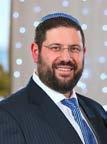
Following the sudden passing of my Rosh Yeshiva, Rav Chaim Drukman zt”l, I redrafted last week’s Torah Tidbits column to pay tribute to the life he led. However, the stories I had planned to write about still remain close to my heart and I am eager to share them with you. Taking advantage of the fact that many Chanukiyot can still be found in doorways and windows throughout the country, the focus of this week’s column is something that Israelis would consider, “תוכוסה רחאל םיגורתא, ” loosely translated to, ‘talking about etrogim after Sukkot.’
Over the years OU Israel has created programs to meet the evolving needs of Am Yisrael in Eretz Yisrael. Today we have programs supporting olim looking to be inspired, teens at risk in search of stability, people looking for their zivug (match), children and adults with disabilities, and many more. It is for this reason that I eagerly await Chanukah each year, because every program celebrates Chanukah in a way that is meaningful to its participants.
To give you just a small taste of what I mean, let me share with you what transpired on the fifth night of Chanukah…
The בלב םירירגש Chanukah Party at OU Israel
Together with the Lev Academic Center’s shidduch initiative, “בלב םירירגש,” (Shagrigim BaLev) OU Israel hosted a Chanukah party
for 100 people ranging from ages 20 to 40, each searching for their zivug. The party was preceded by a walking tour of the Old City of Yerushalayim and followed by light refreshments at the OU Israel Center, during which I addressed participants.
I shared with the attendees that the בלב םירירגש initiative is dear to me, not only because my wife and I finally made our first shidduch this year, but because בלב םירירגש is run by Eli Ninio, the father in law of Racheli Nino, who serves as the Education Director, Training and Development for OU Israel’s Youth Centers. I’ll take this moment to extend my gratitude to Eli for the important work of בלב םירירגש, and Uriel and Eliezer, the organizers of this year’s successful event.
Although I wanted to stay for the remainder of the evening, which ended with a shiur led by Rav Yosef Zvi Rimon, the Rosh Yeshiva of the Jerusalem College of Technology and Rosh Kollel at Yeshivat Har Etzion, I went to join my colleagues Stuart Hershkowitz, Esther Williams, Harel Hetzroni and Oren Asulin at The Zula…
Lighting the Menorah at The Pearl & Harold Jacobs Zula Outreach Center
While Chanukah is a time during which many families unite and enjoy the festivities, many teens at risk throughout the country find this time of year particularly painful and lonely. Recognizing how isolating Chanukah can be, The Zula put together a hadlakat nerot ceremony each night of
4 TORAH TIDBITS 1499 / VAYECHI 5783
Chanukah so that teens could celebrate the chag with their friends and madrichim









On Thursday night The Zula invited a special guest to join the festivities, Moshe Lion, the Mayor of Yerushalayim, who has frequented The Zula hallways on numerous occasions. Despite the late hour, and after a grueling day of meetings, the Mayor joined the event at 10:00 p.m. and immediately began connecting with the teens around him. I was particularly moved when I saw the emotion on his face as he came across a teen who happened to be the grandson of one of his closest friends.
After they finished speaking, the Mayor shared with me that while this boy has a loving family and learns in a yeshiva outside of Yerushalayim, he is experiencing a difficult period in his life. The boy shared that The Zula feels like home to him, and he always stops by on his way back from yeshivah before heading home. Knowing his grandfather, Moshe reflected that this boy’s family would be deeply grateful to know that not only is he off the streets, but he found a stable environment to hang out in, with advisors and social workers who provide the personalized care and attention he needs.
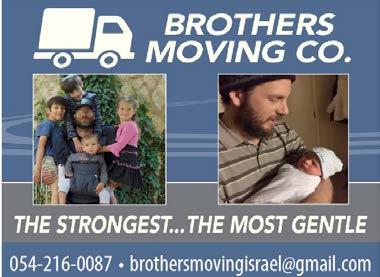
At close to midnight I left The Zula, which was still teeming with teens and advisors, to head to Bayit VeGan for the last event of the day…
Gruss
Institute - OU Israel Yachad Night of Learning
OU Israel’s Yachad program is dedicated to enriching the lives of Jewish individuals with disabilities and their families. To celebrate Chanukah, Yachad gathered 85 yeshiva students for a night
OU ISRAEL CENTER 5 True wholesaler from the diamond boursa with over 25 years experience member diamond dealers club Engagement Rings ∙ Stud Earrings Pendants ∙ Tennis Bracelets 050-573-9061 jeffmor36@gmail.com www.JeffMorDiamondJewelry.com
.
of limud Torah which began at 8:00 p.m. and ended at 1:00 a.m. While I am sure many of the students had many Chanukah chagigot to choose from, they spent their night at the Gruss Institute kollel learning Torah. Moreover, in order to join the night of learning, each participant had to raise $360 to support OU Israel Yachad programming, reaching a total of $30,600. With great food and fantastic energy, the event was a success and continued long after I returned home. I offer a tremendous ya’asher koach to Yoel Sterman, the Director of Development for Yachad Israel and the rest of the team, for successfully coordinating yet another meaningful event.
The light that OU Israel programs brought to Am Yisrael shone brightly throughout Chanukah and I remain uplifted by the

experiences I had. The stories I’ve shared are just from one night of the chag and I can assure you that the remaining seven days were filled with thoughtful events that brought meaning to the lives of many. The OU Israel team ended 2022 on a high and we have a lot of new initiatives planned for the coming year. If you haven’t already done so, join us in our efforts to fortify Am Yisrael in Eretz Yisrael with our 2022 Enable Torah to Thrive Campaign, and donate via this link: https://www.ouisrael. org/ttenable.
Be’ezrat HaShem, may we each see the impact of our efforts b’karov!

Rabbi Avi Berman
Executive Director, OU Israel aberman@ouisrael.org
6 TORAH TIDBITS 1499 / VAYECHI 5783
and our next step will be to plant a fruit tree. I never thought of myself as being the agricultural type, but the feeling of settling and planting a portion of Eretz Yisrael, has been truly euphoric. Iy”H, when we plant our tree, and eat the fruits that will grow one day, I think we will be able to truly appreciate that unique Kedusha found in
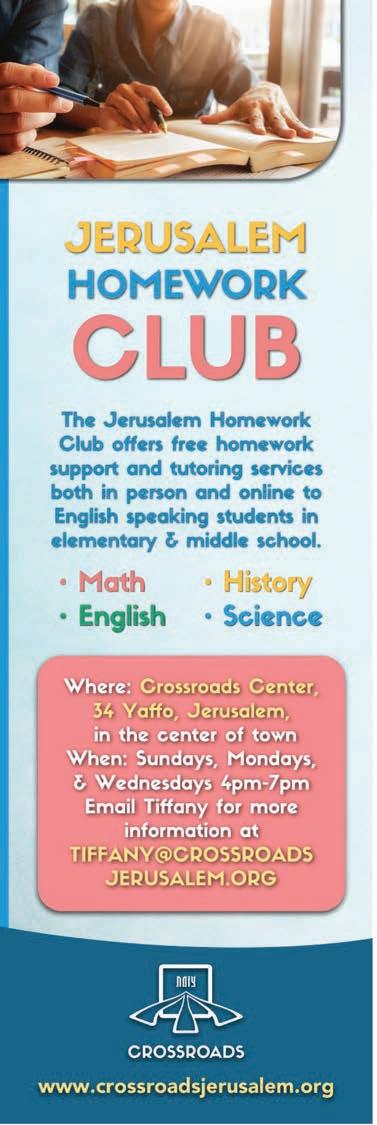
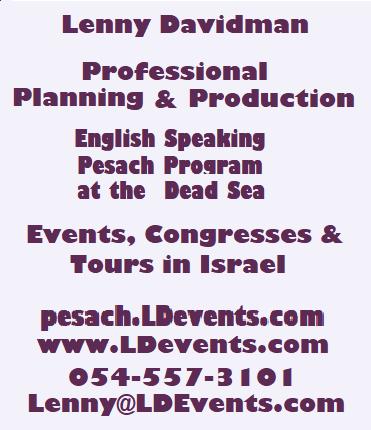

To conclude, when you buy your Tu B'shvat fruit this year, don’t search for those dried apricots and banana chips imported from Turkey. Rather, head over to the fresh produce and buy yourself some nice juicy Kedusha-filled Jaffa oranges and thank in , imbibing that Kedusha in every bite that

OU ISRAEL CENTER 7 OU ISRAEL CENTER 75
Happy Birthday ONE YEAR Hallel Miriam Chana bat Rivka Nechama Tziona Happy Birthday FORTY YEARS Ari Singer Aryeh Yehuda ben Malka Sara May you both grow from strength to strength Shrybman and Singer Family
FROM THE DESK OF RABBI MOSHE HAUER

 OU Executive Vice President
OU Executive Vice President
Shared Strength
When Yaakov concludes giving blessings to his children, the Torah (49:28) states: “This is what their father said to them and blessed them, each according to his blessing he blessed them.” Rashi notes the grammatical inconsistency, as one would have expected the verse to conclude with, “each according to his blessing he blessed him.” He therefore suggests that by grouping them together he was ultimately sharing each of the individual blessings – such as the lion’s strength of Yehuda and the gazelle’s speed of Naftali - with them all.
This is difficult to understand. If they would all end up with all the blessings, what was the value in Yaakov identifying the particular blessings of each? Some commentaries (Gur Aryeh, Nachlas Yaakov) understand that while all of them were
endowed with every one of these strengths, the one to whom the specific strength was attached had a greater measure of it than his brothers.
There is however a more basic understanding. At the outset (49:1-2), Yaakov brought his sons together as a group; “Gather together …. Assemble and listen sons of Yaakov.” While there would have been a loving intimacy in having “private time” with each of his sons before he died, Yaakov’s greater goal was to have all his sons come together as a family and a people so that the strengths of each would benefit the whole.
Only Yehuda has the strength of the lion, and only Naftali has the speed of the gazelle. But when we come together as a family, a nation, a team – we are all blessed with the benefit of Yehuda’s strength and Naftali’s speed. Each of us benefit from the power of the people we work and live with. The unique qualities of each are a blessing to all.
8 TORAH TIDBITS 1499 / VAYECHI 5783
In loving memory of and נ"על IZZY CHESNER z"l ל'ז בקעי לארשי ןב יכדרמ קחצי On his yahrzeit - תבט ג"י Beloved father and grandfather We miss you so much Nechama & Elliot Rosner May the learning from this Torah Tidbits be in loving memory of & נ"על ה"ע ןסינ תב הביר אדיירפ Florence R. Goldman a"h On her 10th yarzheit - תבט ז"ט Beloved Wife, Mother, Grandmother & Great-Grandmother The Goldman and Stoch Families
OLD KATAMON - New small building, 3/4/5/6 rooms, good location, garden or balconies, luxury, quiet, storage, parking, starting at 3,690,000
BAKA - Nice 5 rooms, 120m, modern building, elevator, large sukkah balcony, 3 directions, quiet, storageroom, parking, 5,280,000NIS




PENTHOUSE IN KIRYAT SHMUEL - Great location, 180m, 5 rooms, large sukkah balcony, stone building with elevator, for renovation, parking,quiet, 7,200,000 NIS

UNIQUE HOUSE IN OLD KATAMON - Great location, Beautiful house on a plot of a dunam, huge garden, Arabic style, quiet, 2 parking spots, rare!

OU ISRAEL CENTER 9 kerenmalki.org 02-567-0602 Keren Malki empowers families of children with special needs in Israel to choose home care. Donations are tax-approved in Israel, US and UK. Honoring the memory of Malka Chana Roth ד”יה 1985-2001, killed in the Sbarro bombing. 7 people means me. is when what those purpose next very the heard. the to accept his is the G-d, his humility. people oppoastell My MarSea Modest Swim & Casualwear www.MarSeaModest.net (NIS) www.MarSeaModest.com ($USD) Marci Rapp 050-424-8359 davidz@AshkelonProperties.com LIVE OPPOSITE THE SEA 0544-332621 said another happy client Owning your own apartment does not just allow you freedom, but offers monetary savings, and an increase in your investment value. Anglo-populated, sunny Ashkelon is the answer! It’s very affordable – from $500,000 with just a 15% down payment, mortgages available as well as bank guarantees. Rental income often in excess of 3.5%. Ilana Nelson 054.5341403 www.integrityrealestate.co.il FOR RENT LOVELY, BRIGHT 3 RM APT #4 TCHERNICHOVSKY ST 90 M, WHEELCHAIR ACCESSIBLE FURNISHED WITH APPLIANCES 3RD FLOOR WITH ELEVATOR, IMMEDIATE SHARED PARKING 6500 NIS 28, Kovshei Katamon Street, Jerusalem Tel: 02.5633008 -
www.ben-zimra.com
NIS
KI TEITZEII
VAYECHI
ALIYA-BY-ALIYA SEDRA SUMMARY
Rabbi Reuven Tradburks
Director of RCA Israel Region

Vayechi means life, yet the parsha begins with talk of death and ends with death. Yaakov demands to be buried in Israel. Yosef swears he will. Yaakov elevates his grandchildren, Ephraim and Menashe, to be equal to his children as tribes settling the Land of Israel. He blesses Ephraim and Menashe. Yaakov calls all his sons and blesses each of them. Yaakov dies. He is buried amidst great honor in Maarat HaMachpela. The brothers are afraid that now Yosef will exact revenge. Yosef reassures them. Yosef asks to be buried in Israel when the Jewish people return. He dies and is placed in a coffin in Egypt. The beloved book of Breishit is concluded.
1st Aliya (47:28-48:9) Yaakov asks Yosef to swear that he will not bury him in Egypt but rather with his forefathers. Yaakov falls ill. He tells Yosef that G-d appeared to him in the Land of Israel; he was told his descendants would have a permanent hold in the Land of Israel. Ephraim and Menashe will be treated as equal tribes in dividing the Land. Rachel died on the way into the Land and I buried her there. The Jewish people are ensconced in
Egypt. And that is precisely the theme of this parsha. Yaakov is fighting, pushing, perseverating on one theme; this is not home. All he talks about is the Land of Israel: don’t bury me in Egypt, Ephraim and Menashe will be equals in dividing the Land, may they prosper in the Land (of Israel); he blesses the sons emphasizing their locale in the Land.
Yaakov is insisting: we are here but we’re going to be there.
In fact, were I choosing where to begin this parsha, I would have backed up one verse. (Though the word “Vayechi” has a nice ring to it). The last verse of last week’s parsha is: Yisrael dwelt in the land of Egypt, Goshen, held it, and was exceedingly prosperous.
That is the exact same verse (almost) of the beginning of Vayeishev. There, Yaakov wanted to settle, take root, build a nation in Israel. Now, here he is doing exactly that; settling, taking root. But in the wrong place; in Egypt, not Israel.
Why does Yaakov mention that Rachel died suddenly and was buried on the way to Beit Lechem? Perhaps this is a tender moment between father and son. He is speaking to Yosef. “Yosef, you lost your mother tragically, suddenly. Rachel, my dear
10 TORAH TIDBITS 1499 / VAYECHI 5783
In Loving Memory of Two Dear Sweet Brothers השנמו םירפאכ תבט 'ו - ל"ז רשא ןב לאפר ןושמש תבט 'ז - ל"ז רשא ןב רזעילא םהרבא Both forever missed by their sister and all those who knew them May the Torah learning in this issue be םתמשנ יוליעל
wife. Your mother. You, so young, it was all so sudden, you did not have a chance to bury your mother in the way I am asking you to bury me. You and I shared that tragic time. Now, it is so different. I elderly. You, a grown man, of great success. Maybe we would have had more children. In her memory, in her honor, your 2 sons take their place as full sons of mine, to fill the void that might have been.”
A wistful, tender, shared moment, amidst instructions of national import.
2nd Aliya (48:10-16) Yaakov cannot see. He hugs and kisses Ephraim and Menashe. Yaakov places his right hand on Ephraim, the younger; left hand on Menashe the older. G-d before whom my forefathers walked and Who protected me, bless these. And may they increase in the Land.
You can’t help but hear echoes of Yaakov’s father Yitzchak: blind, gave the bracha to the younger, not the older. But here Yaakov does not bless just one. He blesses both with the same bracha. That makes all the difference. The era of “one is in and one is out” is over. All are part of the Jewish people. And these are grandchildren. Grandchildren means long term, future, legacy, all the children.

3rd Aliya (48:17-22) Yosef does not like the switch of hands. He corrects Yaakov. Yaakov demurs. Both will be great, though the younger will be greater. He blessed them both: The Jews will bless with “May G-d make you as Ephraim and Menashe.”
Yosef suffered from his father’s favoritism. He does not want the same for his children. But Yaakov insists. Because there is a difference between exclusion and distinction.





OU ISRAEL CENTER 11
LIVE OPPOSITE THE SEA davidz@AshkelonProperties.com call David at 054-433-2621 www.ashkelonproperties.com C o n t a c t u s f o r t h e l a r g e s t s e l e c t i o n o f s e a - v i e w p r o p e r t i e s f o r s a l e o r r e n t The marina looks fabulous at night! Such tatseful interior design! Just met another wonderful Anglo neighbor at that new restaurant! Who knew we can earn so much from the rental?
Yaakov is not excluding anyone. Both are in. Both are blessed. Jews in the future will bless with both Ephraim and Menashe. But Yaakov tells Yosef: while from now on all Jews are part of the Jewish people, while all are in, they are not identical. Some will be greater, some less great.
4th Aliya (49:1-19) Yaakov calls his sons to tell them what will occur with them. He addresses them individually. Reuven, my first born. Shimon and Levi, due to your anger, do not associate my honor. Yehuda, you saved my child from destruction; authority will not depart from you. Zevulun will dwell on the coast. Yissachar is a powerful worker; he will see the Land’s goodness and beauty. Dan, the nation’s judge. G-d, we wait for Your salvation.
One word is missing from Yaakov’s address to each of his sons: G-d. The Torah does not say he blesses his sons. Blessings are from G-d. Yitzchak blessed his son: May G-d give you of the dew of the heavens… Even Yaakov himself just blessed Ephraim and Menashe: May G-d before whom my forefathers walked bless these young men. And Yaakov told Yosef the Jewish people will
bless: May G-d bless you as Ephraim and Menashe.
Blessings are from G-d. Why does Yaakov not mention even one time G-d’s name in his address to his sons? Because he is not blessing them. He is describing them. He is emphasizing to them, as he is about to die, that their place is not in Egypt. Their place is in the Land of Israel. And they will get there, with all their varied talents. To build a nation. A nation needs leaders, merchant marines, hard working agriculture, justice. Yaakov is stating as a matter of fact to his sons what the state of the Jewish people in the Land of Israel will look like. You will all be included because all your talents will be needed. And you are all different and essential.
5th Aliya (49:20-26) Yaakov’s address to each son continues. Gad, a legionnaire. Asher, bread and delicacies. Naftali, a swift messenger. Yosef had adversity but with G-d’s help prevailed and was enormously blessed.
With the description of Binyamin in the next aliya, the descriptions are complete. The Jewish nation will be built in the Land of Israel as a result of all of you. None are out, all are in. It will be a nation of agriculture, military, leadership, bounty, justice, commerce, and trade. It will be a colorful, diverse and successful nation.
Yaakov is driving hard, fighting, persevering in his message: we are only here in Egypt temporarily. The Land of Israel is where we will be.
6th Aliya (49:27-50:20) Yaakov’s end is near. He commands his sons to bury him in Maarat Hamachpela, describing in detail Avraham’s
12 TORAH TIDBITS 1499 / VAYECHI 5783
In loving memory of our dear Father, Grandfather & Great Grandfather Jack Beer z"l ל"ז הירא יבצ ןב לוונז לאומש בקעי on his 33rd Yahrtzeit תבט א"י May the Torah learned from this issue be ותמשנ יוליעל The Maisel, Beer and Carroll Families
Cleveland and Norfolk
Efrat,
acquisition of it and the burial there of all the avot and imahot. Yaakov dies. Yosef gets permission from Paro to bury Yaakov in Israel. A great procession accompanies his burial. Upon the return to Egypt, the brothers tell Yosef that Yaakov commanded them to tell Yosef to bear the sin done to him by them. Yosef cries upon hearing this.
Yaakov’s burial in the Land of Israel is the final expression of the message he has been hammering home to his family; Egypt is where we are, but Israel is where our legacy is.

7th Aliya (50:21-26) Yosef counters that G-d has brought them to Egypt so that they may survive. Yosef sees his great grandchildren in Egypt. Yosef has the brothers promise to bring his bones to Israel when they are redeemed.
Yosef is both generous and pious: you, my brothers, did not sell me here. Rather, it was G-d’s plan to save our people, placing me in the position to save you all. That is both generous to his brothers and pious in seeing G-d’s Hand saving the people.

Only problem is that he is wrong.
You can’t fault Yosef. He is correct in what he sees. But he doesn’t see what we see. He sees the little picture. We have the benefit of the big picture. We know what happens next. Many years in Egypt, massive growth, Paro, enslavement, suffering, and finally, redemption. Sure, the descent of the Jewish people to Egypt was G-d’s plan. But it wasn’t just to save the family. It was much bigger than that.

 RABBI
RABBI
OU ISRAEL CENTER 13
GET A PROFESSIONAL VISION EXAM 02-674-3888 FREE exam with purchase USING THE MOST ADVANCED DIAGNOSTIC EQUIPMENT Multifocal Experts Contact lens fittings Satisfaction guaranteed! • Wide selection of beautiful frames You Deserve a Professional Vision Exam Please call for an appointment Macabi and Meuchedet benefits 12 TORAH TIDBITS 1440 / CHAYEI SARA 5782
Knesset When Avraham addresses the people of Cheit, trying to “Ger V’Toshav Anochi Eimachem” (23:4) “A Stranger and This seems to be a contradiction. If one is a stranger than The Magid of Dubno (Jacob ben Wolf Kranz 1741-1804) this tense situation in order to, both, state his truth and be said, on the one hand, “I am a Resident’ due to G-d’s promise need your agreement to purchase a plot. In other words, Avraham “strangers”, while they understood him as saying that “they” The peace was kept, and Avraham remained true to his completes the generational transfer – He
will be Yitzchak and not
BY
Rav, Beit
blesses Yitzchak. The Jewish people
Yishmael.tions of Yishmael are enumerated. Yishmael dies. Hisous and powerful offspring. The brevity and began father’s that his icant the
It was the big plan, the dramatic plan that ends with the Exodus from Egypt.
Yosef has unwittingly been the cause of the descent of the Jewish nation to Egypt. He thought it was G-d’s plan to save the family. But it is really G-d’s plan to ensconce the entire Jewish people in Egypt. For it to grow to a nation. Then to redeem the entire Jewish people from one place at one time. Yosef didn’t know what was to come. But we do.
STATS
12th of 54 sedras; 12 of 12 in B’reishit
Written on 148.33 lines (rank: 45th) 12 parshiot, 7 open and 5 closed In addition, the first part of the sedra is the end of the previous parsha from Vayigash. Vayechi is the only sedra that does not begin at a parsha break.
85 p’sukim - 44th 1158 words - 44th 4448 letters - 43rd Shortest sedra in B’reishit
MITZVOT
No mitzvot are counted from Vayechi. One of 17 sedras without mitzvot.
A SHORT VORT
HAFTORAH VAYECHI 1 KINGS 2:1-12
In this week’s relatively short haftorah King David conveys a message from his deathbed to his son and successor, Shlomo. The words of the haftorah echo this week’s reading of the Torah in the sense that Yaakov also offers his parting blessings and guidance to his sons.
The King of Israel exhorts his son Shlomo to remain loyal and be steadfast in his dedication to Hashem and to abide by His word. If he follows in this path, he will surely see success in all his undertakings and moreover will be a link in an illustrious chain and ensure the continuity of the Davidic Dynasty.
King David also details specific guidelines regarding various people that need to be punished or rewarded for their actions. Finally, the haftorah concludes with the death of King David. He is buried in the City of David. Shlomo takes his father’s place and the kingdom of Israel remains firmly established.
BY RABBI CHANOCH YERES R av, Beit Knesset Beit Yisrael, Yemin Moshe
“Joseph died at the age of one hundred and ten years; they embalmed him...” (50:26) Why is there a need for the Torah to repeat the final age of Joseph when it was just stated in verse 23 “And Joseph lived one hundred and ten years”?
The Gaon, Rabbi Shmuel ben Chofni (993-1013, Sura, Babylon) answers that it is to emphasize the long reign of Joseph, which lasted an uninterrupted eighty years.
The Abarbanel (1437-1508, Spain, Portugal) felt that the earlier verse of 22 relates to the years of Joseph’s life, while in the final verse it is repeated in the context of his death.
However, in his Sefer Shaar Bas Rabim (1911 Poland) Rabbi Aryeh Leib ascribes the repetition of the phrase as a homiletical praise…He died as Joseph. Although Joseph ruled for eighty years and was given an Egyptian name by Pharaoh (Tzafnat Paneach), Joseph still retained his Hebrew name.
By so doing, Joseph set an example to all of his brethren on retaining their Jewish identity. The Rabbis point out that one of the merits in deserving Redemption from Egyptian Exile was that the Israelites never dropped their Hebrew names all through the servitude, perhaps like Joseph. Shabbat Shalom
14 TORAH TIDBITS 1499 / VAYECHI 5783
(וכ:נ) םירצמב ןוראב םשייו ותוא וטנחיו םינש רשעו האמ ןב ףסוי תמיו




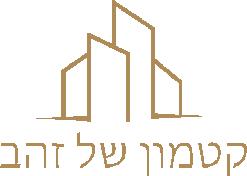
OU ISRAEL CENTER 15 072.394.2557 FOR MORE DETAILS CALL DAVID: COME AND JOIN OUR PRIME LOCATION BOUTIQUE PROJECT "KATAMON OF GOLD" 1-4 bedroom apartments built to a high standard, all with a Sukkah balcony and covered parking.
THE PERSON IN THE PARSHA
BY RABBI DR. TZVI HERSH WEINREB OU Executive Vice President, Emeritus


Changing the World
I’ve always been impressed by something my grandfather told me many years ago. I believe he quoted the following in the name of Rabbi Israel Salanter, the 19th century founder of the Mussar Movement which advocated the perfection of our ethical behavior:
“When you’re young, you think you can change the world.
As you get older, you realize that you can’t do that, but you’re still convinced that you can change the town in which you live.
Then, there reaches a point where you realize you can’t do that either.
But you’re still sure that you can change your family.
Finally, you become aware that the most you can do is change yourself.”
What’s amazing to me, however, are the rare examples of individuals who have been able to change their worlds. I remember, for example, the older couple who lived in a community in which I once lived. We were a group of young married couples, most of
whom were in the final stages of their professional training. The older man and his wife were both Holocaust survivors. We were certain that they felt out of place in our youth-oriented community. But eventually we realized not only that they fit in with us, but that they had an impact on each of us individually and upon our group as a whole. One couple was able to subtly but profoundly change an entire community.
I also recall the relatively few young men and women who were able to galvanize the American Jewish community to heed the plight of Jews in the Soviet Union. The adult religious and political establishments belittled those efforts, thinking them futile, even counterproductive. But a handful of young committed individuals were able to change the attitudes of masses of Jews, finally achieving nothing less than the freedom of millions of our brethren.
Individuals can impact entire societies. This lesson can be learned from a careful study of this week’s Torah portion, Parshat Vayechi (Genesis 47:28-50:26). For, as I hope to demonstrate, Jacob alone changed his social environment at least twice in his life. Once, early on, he influenced the small town of Be’er Sheba. Then, during the last stage of his life, he performed the feat of changing the culture of the most powerful nation of his time; Egypt.
We learned of his first achievement several weeks ago, when we read the first verse
16 TORAH TIDBITS 1499 / VAYECHI 5783
of the parsha of Vayetze. “And Jacob left Be’er Sheba and set out for Haran” (Genesis 28:10). Rashi notes that the text emphasizes Jacob’s departure from Be’er Sheba. With his departure, “gone was the glory, gone was the beauty, gone was the prestige,” which Jacob’s presence bestowed upon that town. His very presence added so much to the town that when he left, the town was altered.
Vayechi is one of only two parshiyot that carry the Hebrew word for life, chayim. The other is Parshat Chaye Sarah, which we read a while ago. It begins, “Sarah’s lifetime [the span of Sarah’s life] came to 127 years.” This week, Vayechi begins with the verse, “And Jacob lived 17 years in the land of Egypt”. Ironically, both narratives immediately continue with accounts of the deaths of the two protagonists, those of Sarah and Jacob.
But there is a difference. Chaye Sarah indeed begins with an account of Sarah’s death and burial. On the other hand, this week’s Torah portion refers to the life Jacob lived in his final 17 years, near his beloved Joseph. Those final 17 years parallel the years which Jacob shared with Joseph, until they were tragically separated as Joseph turned 17.
How different these 17 years were from the earlier ones. The initial 17 years of Joseph’s life were full of difficulties for Jacob: the trickery of Laban, the enmity of Esau, the seduction of Dinah, the violence of Simon and Levi, the death in childbirth of Rachel, Reuben’s misconduct...and the heartbreaking disappearance of Joseph.
But his final 17 years, spent in Egypt of all places, were full of life for Jacob; a vibrant and peaceful life, a renewed life, a life lived
Most exquisite properties in Jerusalem!!

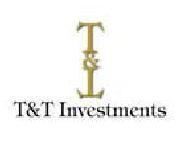
New Listing! On the exquisite Dubnov St. in Talbieh, private 135m cottage, totally renovated with 65m private landscaped garden, view from balconies, a real gem! MAYA - 054-6650184
Magnificent Authentic private house on a small dead end of Baka - 650m built on 3 levels with huge basement, 750m plot with wonderful landscaped garden, thoughtful layout, an abundance of light,a unique property!
DEBORAH - 054-4804767
Luxurious garden apartment on a small lane of Old Katamon, 340m built on 2 levels, 8 rooms, separate unit with separate entrance, high ceilings, full of charm, very quiet & bright, 130m private garden, top of the line finishes, close to the park DEBORAH- 054-4804767
In a small lane of the German Colony, Garden apartment with private entrance, 250m with private garden, parking, high ceilings, in an Authentic beautiful 3 apartment building MAYA – 054-6650184
Beautiful new penthouse in Greek Colony- 190m with 80m terraces, succah, beautiful views, 5 rooms, elevator, parking, renovated at very high standard, spacious living areas and huge kosher kitchen
MAYA – 054-6650184
On the edge of The German Colony - Unique Authentic building of 700m built on a huge plot of 1,200m - perfect for an apartment building or a tremendous private house.
DEBORAH - 054-4804767
Private small building in Baka, Shimshon St. 300m with additional building rights, huge private garden, divided into 3 units so can be private house of 3 separate apartments, very attractive price
DEBORAH - 054-4804767
On the exquisite Elcharizi St., Rechavia, new project, new 280m penthouse, 100m terraces, finishes and layout according to buyer requests!
DEBORAH - 054-4804767
Ben Maimon St. Duplex new apartment, 5 bedrooms, 4 ensuite, 4 terraces, private parking, Shabbat elevator, all renovated, 3 exposures, very sunny!!
DEBORAH-054-4804767
OU ISRAEL CENTER 17
T&T INVESTMENTS 02-6744000 0544-804767 King David St. 26
LEADING BOUTIQUE REAL ESTATE FIRM, O n M e n d e l e S t . T a l b i completely renovated, •
www.real-estate-jerusalem.co.il
in the bosom of his family, surrounded by children and grandchildren.
Remarkably, however, Jacob did not sit back idly and simply enjoy those years. Rather, he acted to bring blessing to the land of Egypt. As Rashi states in last week’s Torah portion: “Although Joseph predicted five more years of famine, great blessing accompanied Jacob when he came to Egypt. The people began to plant, and the famine ended.” Other rabbinic sources tell us that it was because of Jacob’s encouragement that the people resumed their agricultural activities, trusting him that they would be productive.
In Hasidic literature, we learn even more about Jacob’s role in Egyptian society. Hasidic sources are fond of quoting the holy Zohar, which notes that never in the lengthy narrative of Jacob’s life is the phrase “and he lived” mentioned, because his life was full of trials and tribulations. Only when he descended to Egypt do we find this precise phrase.
One early 20th century Hasidic sage, Rabbi Israel of Modzitz, the author of the homiletic work Divrei Yisrael, suggests that the verb in the phrase vayechi, “and he lived [in the land of Egypt],” can be interpreted as a transitive verb: “and he brought life to [the land of Egypt].” He revived Egypt.
Let us not forget that Egypt was, until this famine, the most fertile land on earth, the breadbasket for the world. We recall Lot’s description of the plain of the Jordan, which he believed to be “like the garden of the Lord, like the land of Egypt” (Genesis 13:10). But when Jacob arrived in Egypt, it was no longer “like the garden of the Lord.” It was not a source of life. It reeked of death, as
Egyptian farmers complained: “nothing is left...save our bodies and our farmland. Let us not perish before your eyes...Provide the seed, that we may live and not die.”
Rabbi Israel probes deeply in his attempt to understand the spiritual powers which enabled Jacob to vivify a dead land. His analysis is a fascinating one. He points out that in order for a seed to develop into a source of food the seed must go through two processes. It must first decay in the earth, losing all resemblance to the seed it once was. Then it is stimulated to grow. It must have what he calls the koach habitul, the capacity to negate itself, to efface itself. It must also have the koach hatzemicha, the ability to come alive, to sprout, to flourish.
Rabbi Israel continues to demonstrate that these two capacities were characteristic of Jacob, essential to his personality. Firstly, he had the koach habitul, the capacity to demonstrate humility. He once exclaimed: “I am too small to deserve all the kindness that you have so steadfastly shown your servant” (Genesis 32:10). Jacob’s ability to model self-effacement for the rest of Egyptian society was crucial in its revival.
Secondly, Jacob possessed the koach hatzemicha, the capacity to flourish. Here, Rabbi Israel demonstrates his homiletic ingenuity and keen psychological insight. The secret of tzemicha, the ability to transform oneself, to blossom, is the ideal of truth. As the Psalmist says, “Truth will sprout forth from the earth”. Truth has a generative power. It can cause genuine transformation and authentic change. And truth, as Micah teaches us at the very conclusion of his prophecy, is Jacob’s hallmark: “You have granted truth to Jacob, loyalty to Abraham, as you promised
18 TORAH TIDBITS 1499 / VAYECHI 5783
on oath to our fathers in days gone by” (Micah 7:20).
MENACHEM PERSOFF

Special Projects Consultant, OU Israel Center mpersoff@ou.org















Jacob’s humility and his commitment to truth were his two secret powers that enabled him to foster growth in others and to single-handedly transform an entire culture.
Thinking back to the elderly couple who lived among our group of inexperienced twenty-somethings, it was that couple’s sincere humility and their absolute authenticity and truthfulness which enabled them to penetrate our naïveté and teach us lessons for a lifetime.
And it was the selflessness and genuine commitment of a small group of young people that helped them change the minds of an entire society and eventually even change the minds of the Soviet tyrants.
We can use the occasion of the conclusion of the Book of Genesis this week to rededicate ourselves to those two primary Jewish values: humility and truth. We can, thus, cultivate in ourselves the koach habitul and the koach hatzemicha, the capacity to humbly cause others to flourish.
But Jacob teaches us that we can go beyond changing ourselves. We can influence our families and impact our communities, and perhaps even change the world.
OU ISRAEL CENTER 19
“TzviAir is a pleasure to work with and did an amazing job!” – Jamie Geller, Celebrity Chef AIR CONDITIONING SALES & SERVICE 02-628-8282 | tzviair.com 053-‐427-‐6363 CINEMA
CITY
MALL,
JERUSALEM ArthurMSamuels@gmail.com PODIATRIST Over
30
years
experience Arthur
Samuels,
DPM Licensed in Israel & America CINEMA CITY MALL, JERUSALEM In Honor of Dana Porath Upon her retirement after 30 years of Director of Digital Content at Yad Vashem With Love, Gerald, Chavi and Mikey, Michal and Sam, Hillel and Aliza, Yisroel and Shoshana, Elisha and Yedida, Dovid, and Families
May
Thoughts on the Weekly Parsha from RABBI

On Not Predicting the Future
Jacob was on his deathbed. He summoned his children. He wanted to bless them before he died. But the text begins with a strange semi-repetition:
Gather together so that I can tell you what will happen to you in the days to come. Assemble and listen, Jacob’s sons. Listen to your father Israel. (Gen. 49:1–2)
This seems to be saying the same thing twice, with one difference. In the first sentence, there is a reference to “what will happen to you in the days to come” (literally, “at the end of days”). This is missing from the second sentence.
Rashi, following the Talmud,1 says that “Jacob wished to reveal what would happen
1 Rashi to Gen. 49:1; Pesachim 56a; Bereishit Rabbah 99:5.
in the future, but the Divine Presence was removed from him.” He tried to foresee the future but found he could not.
This is no minor detail. It is a fundamental feature of Jewish spirituality. We believe that we cannot predict the future when it comes to human beings. We make the future by our choices. The script has not yet been written. The future is radically open.
This was a major difference between ancient Israel and ancient Greece. The Greeks believed in fate, moira, even blind fate, ananke. When the Delphic oracle told Laius that he would have a son who would kill him, he took every precaution to make sure it did not happen. When the child was born, Laius nailed him by his feet to a rock and left him to die. A passing shepherd found and saved him, and he was eventually raised by the king and queen of Corinth. Because his feet were permanently misshapen, he came to be known as Oedipus (the “swollen-footed”).
The rest of the story is well known. Everything the oracle foresaw happened, and every act designed to avoid it actually helped bring it about. Once the oracle has been spoken and fate has been sealed, all attempts to avoid it are in vain. This cluster of ideas lies at the heart of one of the great Greek contributions to civilisation: tragedy.
20 TORAH TIDBITS 1499 / VAYECHI 5783
ה״ע זייא דוד לארשי
ה״ע רטרש קחצי תב הינעמו
הירא
לאירזע
תומשנ יוליעל
תב הדלוגו רשא בקעי ןב סחנפ
בייל
ןב
LORD JONATHAN SACKS ZT"L Former Chief Rabbi of the United Hebrew Congregations of the Commonwealth
COVENANT & CONVERSATION
the learning of these Divrei Torah be תמשנ יוליעל HaRav Ya'akov Zvi ben David Arieh zt"l
Astonishingly, given the many centuries of Jewish suffering, biblical Hebrew has no word for tragedy. The word asson means “a mishap, a disaster, a calamity” but not tragedy in the classic sense. A tragedy is a drama with a sad outcome involving a hero destined to experience downfall or destruction through a character flaw or a conflict with an overpowering force, such as fate. Judaism has no word for this, because we do not believe in fate as something blind, inevitable, and inexorable. We are free. We can choose. As Isaac Bashevis Singer wittily said: “We must be free: we have no choice!”2
Rarely is this more powerfully asserted than in the Unetaneh Tokef prayer we say on Rosh Hashanah and Yom Kippur. Even after we have said, “On Rosh Hashanah it is written and on Yom Kippur it is sealed…who will live and who will die,” we still go on to say, “But teshuvah, prayer, and charity avert the evil of the decree.” There is no sentence against which we cannot appeal, no verdict we cannot mitigate by showing that we have repented and changed.
There is a classic example of this in Tanach.


In those days Hezekiah became ill and
2 Quoted in slightly varying forms, as “We have to believe in free will. We’ve got no choice” attributed to L. Tiger, Optimism: The Biology of Hope (New York: Simon & Schuster, 1979).
OU ISRAEL CENTER 21
MASSAGE THERAPIST & FITNESS TRAINER 052.673.3704 I www.andyhealth.com | jerusalemmyhome@hotmail.com TUVIA ANDY HAAS BALANCE and FALL-PREVENTION SPECIALIST for OLDER ADULTS Maintain Healthy Bones and Muscles Decrease Stiffness and Joint Pain Increase Strength! Stay Independent!
was at the point of death. The prophet Isaiah son of Amoz went to him and said, “This is what the Lord says: Put your house in order, because you are going to die; you will not recover.” Hezekiah turned his face to the wall and prayed to the Lord, “Remember, Lord, how I have walked before You faithfully and with wholehearted devotion and have done what is good in Your eyes.” And Hezekiah wept bitterly. Before Isaiah had left the middle court, the word of the Lord came to him: “Go back and tell Hezekiah, the ruler of My people: This is what the Lord, God of your father David, says: I have heard your prayer and seen your tears; I will heal you.” (II Kings 20:1–5; Is. 38:1–5)
The prophet Isaiah had told King Hezekiah he would not recover, but he did. He lived for another fifteen years. God heard his prayer and granted him stay of execution. From this the Talmud infers, “Even if a sharp sword rests upon your neck, you should not desist from prayer.”3 We pray for a good fate, but we do not reconcile ourselves to fatalism.
Hence there is a fundamental difference between a prophecy and a prediction. If a prediction comes true, it has succeeded. If a prophecy comes true, it has failed. A prophet delivers not a prediction but a warning. He or she does not simply say, “This will happen,” but rather, “This will happen unless you change.” The prophet speaks to human freedom, not to the inevitability of fate.
I was once present at a gathering where Bernard Lewis, the great scholar of Islam, was asked to predict the outcome of a certain American foreign policy intervention.
Brachot 10a.

22 TORAH TIDBITS 1499 / VAYECHI 5783
3
He gave a magnificent reply. “I am a historian, so I only make predictions about the past. What is more, I am a retired historian, so even my past is passé.” This was a profoundly Jewish answer.
In the twenty-first century we know much at a macro- and micro-level. We look up and see a universe of a hundred billion galaxies each of a hundred billion stars. We look down and see a human body containing a hundred trillion cells, each with a double copy of the human genome, 3.1 billion letters long, enough if transcribed to fill a library of five thousand books. But there remains one thing we do not know and will never know: what tomorrow will bring. The past, said L. P. Hartley, is a foreign country. But the future is an undiscovered one. That is why predictions so often fail.
That is the essential difference between nature and human nature. The ancient Mesopotamians could make accurate predictions about the movement of planets, yet even today, despite brain-scans and neuroscience, we are still not able to predict what people will do. Often, they take us by surprise.
The reason is that we are free. We choose, we make mistakes, we learn, we change, we grow. The failure at school becomes the winner of a Nobel Prize. The leader who disappointed, suddenly shows courage and wisdom in a crisis. The driven businessman has an intimation of mortality and decides to devote the rest of his life to helping the poor. Some of the most successful people I ever met were written off by their teachers at school and told they would never amount to anything. We constantly defy predictions. This is something science has not yet
Jerusalem Real Estate is My Business Eta: 054-723-3863 Rachel: 052-546-6425

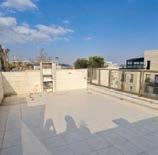


Amazing stand alone homes in OLD KATAMON, TALBIYA, BAKA, GERMAN COLONY
Allenby Complex. Across from BAKA. 160 sqm penthouse quiet with views. 4 bedrooms & 2.5 bathrooms. Shabbat elevator, sukka terrace from living room plus roof top terrace 2 parking & storage. 6,400,000 NIS
Yemin Moshe beautiful property over 300 sqm. 2 private entrances (complete separate unit over 90 sqm). large garden. Close to parking & gorgeous architectural design newly renovated. Call for more info

In the heart of BAKA enclosed in a magical courtyard: 3 bedrooms 2 full bathrooms one flight up. Beautiful spacious sukka terrace facing open gardens Completely renovated with architectual design & high level finishes. 6,250,000 NIS
Penthouse near BAKA. 154 sqm on one floor with 4 bedrooms and 2 full bathrooms. Shabbat elevator, 2 underground parking and 3 storage units!!! 25 sqm Sukka terrace off living room plus large roof top terrace. 6,250,000 NIS

Eta Morris Realty, Ltd. etamorrisrealestate@gmail.com
Eta: 054-723-3863 · Rachel: 052-546-6425 etamorrisrealty.co.il
OU ISRAEL CENTER 23
explained and perhaps never will. Some believe freedom is an illusion. But it isn’t. It’s what makes us human.
We are free because we are not merely objects. We are subjects. We respond not just to physical events but to the way we perceive those events. We have minds, not just brains. We have thoughts, not just sensations. We react but we can also choose not to react. There is something about us that is irreducible to material, physical causes and effects.
The way our ancestors spoke about this remains true and profound. We are free because God is free, and He made us in His image. That is what is meant by the three words God told Moses at the Burning Bush when he asked God for His name. God replied, Ehyeh asher Ehyeh. This is often translated as “I am what I am,” but what it really means is, “I will be who and how I
Dr. Harry Weisman

choose to be.” I am the God of freedom. I cannot be predicted. Note that God says this at the start of Moses’ mission to lead a people from slavery to freedom. He wanted the Israelites to become living testimony to the power of freedom.
Do not believe that the future is written. It isn’t. There is no fate we cannot change, no prediction we cannot defy. We are not predestined to fail; neither are we pre-ordained to succeed. We do not predict the future, because we make the future – by our choices, our willpower, our persistence, and our determination to survive.
The proof is the Jewish people itself. The first reference to Israel outside the Bible is engraved on the Merneptah stele, inscribed around 1225 BCE by Pharaoh Merneptah IV, Ramses II’s successor. It reads: “Israel is laid waste; her seed is no more.” It was, in short, an obituary. The Jewish people have been written off many times by their enemies, but they remain, after almost four millennia, still young and strong.
That is why, when Jacob wanted to tell his children what would happen to them in the future, the Divine Spirit was taken away from him. Our children continue to surprise us, as we continue to surprise others. Made in the image of God, we are free. Sustained by the blessings of God, we can become greater than anyone, even ourselves, could foresee.
These weekly teachings from Rabbi Sacks zt”l are part of his ‘Covenant & Conversation’ series on the weekly Torah teaching. With thanks to the Schimmel Family for their generous sponsorship, dedicated in loving memory of Harry (Chaim) Schimmel. Visit www.RabbiSacks.org for more.
24 TORAH TIDBITS 1499 / VAYECHI 5783
Former Assist. Clinical Professor of Medicine, UCLA School of Medicine; Div. of Endocrinology & Metabolism Weight loss Consultation +972 53 472 2159 Author of The 18% Solution –Lose 18% of Your weight in 18 Weeks


OU ISRAEL CENTER 25 Neve Ilan Hotel Surrounded by nature in the Majestic Jeusalem Hills. Scholars in Residence: Rabbi Shai Finkelstein Mehadrin Rabbanut Mateh Yehuda. Hacienda Forest View Hotel Enjoy this magical resort Hotel in the heights of the Western Galilee Scholar in Residence: Rabbi Professor Daniel Sinclair. Mehadrin Rabbanut Maalot Choose your Perfect Vacation at one of Zvi Lapian's Famous Family Pesach Programs zvilapian@gmail.com • Tel. +972-54-447-3851 • www.zvilapian.com Toll free UK: 0800-098-8428 • Toll free US: 1-800-376-1803
PROBING THE PROPHETS
BY RABBI NACHMAN (NEIL) WINKLER Faculty, OU Israel Center


Over the years, we have both compared and contrasted the parting words of Ya’akov Avinu found in the parasha and those of David HaMelech, found in our haftarah. The different messages that they leave to their children, clearly reflect the different challenges that the respective generations would face. Ya’akov’s messages to his sons are meant as both words of admonition and blessing that would guide them into the future -and they are significant lessons that parents might normally share with the children. David’s message, however, is not.
The haftarah opens with David’s words to Shlomo of “v’chazakta, v’hayita l’ish” – to be strong and become a “man”. Such a charge to one so young (a mere 12 years old, according to Chazal), is quite understandable. But it is also a reminder to Shlomo that, since his coronation (found in the first perek), he had been guided by his father, so David now reminds him that he must “be a man” – a grown adult, independent and capable of shouldering the weighty responsibilities of a regent. Logical as well, was the elderly King’s warning that his son’s success would be dependent upon his adherence to Hashem’s mitzvot, as detailed in the Torah.
We listen with appreciation to David’s urgent plea to treat the family of Barzilai with generosity, as their father, Barzlai, supported and sustained David during his difficult months when he fled from his rebellious son, Avshalom. The advice is certainly one that
sits well with us, as showing hakarat hatov, gratitude to one who had done so much, is an admirable trait and a proper message to share with the incoming regent.
We might also read with understanding the elderly King’s warning not to trust Shim’i ben Gera who, although apologizing to David for having cursed him and pelted him with stones, was part of Sha’ul’s family and remained a danger to the stability of a Davidic dynasty.
We might, however, feel real discomfort upon hearing the message that David leaves to his son regarding the treatment to be meted out to Yoav, David’s former Chief-ofStaff. Yoav ben Tzruya was David’s nephew, a supporter and defender of David through his years, who had saved David’s life more than once. Why would David tell Shlomo to suspect Yoav’s allegiance to the throne and see him as a threat to his reign?
Allow me to respond. Yoav had a history – one that indicated that, as much as he supported David, he also undermined him. In the early years, when David ruled over Yehuda alone, he had come to an agreement with Avner ben Ner, the military leader of Ish Boshet (son of Shaul and ruler of the other tribes): Avner would become a general for
26 TORAH TIDBITS 1499 / VAYECHI 5783
Rabbi Winkler's popular Jewish History lectures can be viewed by visiting the OU Israel Video archive: https://www.ouisrael.org/video-library
David and would bring all of the tribes under David’s rule. It was the opportunity to realize Hashem’s promise that David would rule over all of Israel. At that very crucial time, Yoav, seeing Avner as a threat to David (and, perhaps, to Yoav’s own position), assassinates Avner, thereby delaying the reunification of the tribes.
In a very similar way, David, following the fractious rebellion of Avshalom, brokered an agreement with his nephew, Ammasa ben Yeter who had been the leader of Avshalom’s army, and made him his own general – replacing Yoav. By doing so, David hoped to merge the warring factions and to reunite the nation once more. And, again, Yoav assassinates his rival, threatening to prolong the division within Israel.
And so, after Yoav openly defied David’s wishes by supporting Adoniya in his fight for the throne, the King realized that Yoav could not be trusted. I imagine that it wasn’t an easy decision for David, but, in the end, he was proven right, for, after David’s passing, Yo’av did attempt to replace Shlomo with the older brother, Adoniya.
In summation, we can see Ya’akov’s blessings as directives to help his once-divided twelve sons to unite and grow into one nation, and we can see David’s directives as a mode to insure that his united nation would not divide into twelve tribes.
Both fathers looked to the future but each recognized the unique challenges that had to be met for that future.
Eiferman Properties Ltd.
www.eifermanrealty.com
EXCITING PROJECTS, BUILDINGS
Presales and immediate occupancy, BUILDINGS AND VILLAS
In the most desirable neighborhoods
SHAAREI CHESSED / RECHAVIA
Prime Apartments! Prime Location!
1) Renovated 110
FOR MANY MORE PROPERTIES:

OU ISRAEL CENTER 27
COLONY
duplex 5.5
KATAMON In a small building, 125
private entrance 3 exposures,
HAR NOF * 4 Rooms with building permits, succah, view! * 5 Rooms, renovated, large succah, view! * Shlav B– 200 sqm garden duplex apartment, beautiful kitchen, wrap around garden. OLD KATAMON : * Renovated 3 bdrms including MB en suite, fully furnished, succah and storage! * 4 Bedrooms, duplex penthouse, succah, private elevator. BAKA: Newly renovated 4 bedrooms, semi furnished, balcony, Shabbat Elevator, parking, storage. 02-651-4030 FOR SALE - NEW LISTINGS RENTALS JERUSALEM SALES Xtreme Klean Expert upholstery cleaning Couches - Chairs - Carpets professional and courteous Aaron Sokol 050-979-9934
sqm 3 bedroom apt, 1st floor, A/C + underfloor heating, 3 air exposures, succah balcony NIS 6,500,000 2) Beautifully designed 125 sqm 3 bedroom apt + 50 sqm succah balcony. Shabbat elevator, parking and view. 3) Architecturally designed 228 sqm duplex penthouse, 4 bedrooms + 30 sqm succah balcony. Shabbat elevator, parking and a view. GERMAN
Beautiful
rooms, private entrance! OLD
sqm,
Excellent potential, NIS 4,300,000
And Yaacov lived in the land of Egypt for seventeen years, and Yaacov’s days, the years of his life, were a hundred and forty-seven years. (Bereshit 47:28).
Shnei Hayav
The opening pasuk in this week’s parsha seems a bit wordy. We are told that Yaacov lived in the Mitzrayim for 17 years and then we are informed of his age- 147. The Torah previously records Yaacov’s age, which he reveals to Pharaoh in their initial meeting. (Bereshit 47:9). If Yaacov is 130 at that point, and we are told that he lived in Mitzrayim for 17 years, then we can do the math and deduce that Yaacov lived to the age of 147. It is not necessary to state his actual age. Moreover, the words “וייח ינש” (Shnei Hayav-Yaacov’s days) seem superfluous. The pasuk would read smoothly without those two words, and we know the Torah does not include any “extra” verbiage. What lesson can we derive from this seemingly unnecessary language?
Two Challenges
The Tiv Hapninim offers an insightful
explanation. Perhaps the word shnei “ינש” which many interpret to refer to “years” (from the word “shana”), may actually reflect another translation of that word- a derivative of the word “shnaim” meaning “two”. This symbolizes two nisyonot (tests) that man encounters throughout life in connection with one’s religious observance.
One nisayon is being challenged when downtrodden and poor. When experiencing difficult times, man is to recall דיבעד המ לכ דיבע בטל אנמחר – in the end, it is all for the good. The gemara in Berachot (54) declares that just as man blesses God in good times, man should bless God in challenging periods as well.

The second type of nisayon is when man is successful and financially secure. It may seem trivial, but often this is a more difficult task. The Torah warns us that when we are well off, we should not attribute our success to our own prowess but recognize that it is a gift from Above.
A story is told of an incident that occurred in a small town. Every Tuesday at noon in the town square money would fall from the sky. The people of the town would gather below and look closely at the ground so they could view and quickly gather the bills that fell. One Tuesday at noon, people gathered in the town square and suddenly felt rocks
28 TORAH TIDBITS 1499 / VAYECHI 5783
RABBI SHALOM
Challenging and Fruitful Periods בֹקֲעַֽי־יֵמְי יִהְיַו ה ָנָׁש ה ֵרְׂשֶע ע ַבְׁש םִי ַרְצִמ ץֶר ֶאְּב בֹקֲעַֽי יִחְיַו )חכ:זמ תישארב( :הָֽנָׁש תַאְמּו םי ִעָּבְרַאְו םי ִנָׁש עַב ֶׁש וי ָּיַח יֵנְׁש
Rav Kehilla, Nofei HaShemesh Maggid Shiur, Daf Yomi, OU.org Senior Ra"M, Kerem B'Yavneh
ROSNER In
המלש האופר הנבל ןב ריאמ בקעי
plummeting upon them. They all looked up to see who was throwing rocks at them. When money was falling, no one looked up, they just sought to gather the bills. It was when descended that they desired to discover the source of the phenomena. Unfortunately, often man acts in that regard with respect to his relationship with God. When things are going well, man does not look upward, he takes credit for his success and focuses on his wealth. Only in difficult times man looks up desperately seeking salvation.
more about patient self-control than physical might. It is found in the Talmudic tractate Kiddushin 40a, where the tale is told about a certain Rabbi Zadok, who resists the attempts of a particularly powerful noblewoman to lead him astray. He exerts moral strength, and to him the Talmud applies the following biblical verse: "Bless the Lord, O His angels, mighty creatures who do His bidding, ever obedient to His bidding. Bless the Lord, all His hosts, His servants who do His will." (Psalms 103:20-21)
Exclusive!
www.angelrealty.co.il

For Sale in The Village, Zayit, Eftat Stunning 210m 8 room cottage, 2 private parking spots, central A/C. 4,800,000 NIS
Yaacov had many challenges. He was called Yisrael םיקולא םע תירש יכ – because he struggled. Yaacov struggled throughout his life. First with his brother Esav, then with Lavan. When Yaacov returns to Eretz Yisrael he desires to live in peace, as Hazal state on the pasuk “Vayeshev Yaacov” – תבשל הצר בקעי הוולשב. Perhaps, he wanted to articulate to Hashem, that I am not only loyal to you in desperate times, but in peaceful times as well.
Isaac's way recognizes the necessity for great patience and forbearance. If we adopt Isaac's way, we must be prepared for a lengthy process before our challenges are resolved. In the words of Rabbi Abraham Isaac Kook, words which have been memorialized in a popular song, "An eternal people does not fear the long and arduous path."
For Sale in Dagan, Efrat Stunning 8 room cottage, middle unit. 3 floors, 230m. 5,250,000 NIS For Sale in Gefen, Efrat Beautiful 5 room duplex garden 2,850,000 NIS For Sale in Dagan, Efrat 5 room garden apt. 120 meters 2,990,000 NIS
Beautiful, spacious 4 room luxury unit, 2.5 baths, 2 oor, Shabbat elevator, large succa terrace, storage + covered parking.
Rehavia-Talbieh on quiet Radak May the Torah learned from this issue of TT be in loving memory and נ"על our dear parents whose yahrtzeits are in Kislev



SHELLY LANDAU PROPERTIES

& EVA AVIAD REALTY bayitsheli@gmail.com www.aviadrealty.com 052-385-9944 • 054-499-9043

For Sale in Olive Project, Zayit, Efrat Gorgeous 4 room apt. 120m. 2,850,000 NIS For sale in Zayit, Efrat 6 room duplex apt. 2,850,000 NIS Contact Gabi for more info 0524588716
Greatly missed by their children, grandchildren and great grandchildren Rav Aryeh and Dvora Weinberger Bernie and Leah Weinberger Menachem and Hannah Katten
Patience is necessary for those who follow Isaac's way. But a wise woman taught us that patience is but another name for hope. That woman was Jane Austen, who put these words into the mouth of one of the characters in her great novel, Sense and Sensibility: "Know your own happiness. You want nothing but patience—or give it a more fascinating name: call it hope."
The Torah informs us that all of Yaacov’s 147 years were complete. Yaacov was a true yerei shamayim (God fearing individual) when he faced challenging times and when he flourished. May we be able to emulate Yaacov and appreciate all that Hashem bestows upon us in fruitful as well as during more demanding instances.
OU ISRAEL CENTER 29
OU ISRAEL CENTER 15
SEALING SERVICES
LTD
ולסכ
המלש לאקזחי תב האל הרובד
ולסכ ז"כ -ל"ז בד ןב ךלמילא
SEALING SERVICES AND ROOFING
Doris Weinberger a"h
'ד -ה"ע
Max Weinberger z”l
REBBETZIN SHIRA SMILES
Bed’s Beauty
In the beginning of our parashah we find a peculiar detail that seems like it should be insignificant, yet it is found twice in near succession, and therefore begs for interpretation. Yaakov Avinu approaches the end of his days. He enjoins his son Yosef Hatzadik to swear that he will make certain to bury Yaakov in Eretz Yisrael, “Al na tikbireini b’Mitzrayim. Veshachavti im avotai… vayishava lo vayishtachu Yisrael al rosh hamitah – do not bury me in Egypt. Let me lie with my fathers…[Yosef} swore to him and Yisrael bowed toward the head of the bed.” (Bereisheet 47;29-31) A short while later, Yosef brings his children to Yaakov so he can bless them. Yaakov is told that Yosef has come, “Vayichazek Yisrael vayeshev al hamitah – Yisrael exerted himself and sat up on the bed.” (Bereisheet 48;2) What is the meaning of mentioning Yaakov’s bed that it is mentioned not once, but twice?
In the first instance Rashi notes that Yaakov turned in respect toward the head of the bed as the Shechinah is present above the head of one who is ill. This teaches us a broader understanding of the mitzvah of bikur cholim. Indeed, when visiting a sick person, one should not sit at the head of the bed. Additionally, if we know that the Shechinah is nearby, it is an auspicious time to daven to Hashem for the person’s recovery, and further, for all
of one’s needs. The bedside of a sick person becomes a potent place to daven. When visiting the ill and infirm, one should remember the three aspects of fulfilling bikur cholim; cheering up the sick person, seeing what could be done to help them, and davening for their quick and smooth recovery.
We see here, teaches Rav Gamliel Rabinovitz in Tiv Hatorah, a sharp contrast between Yaakov bowing toward the head of the bed, showing deference to the Shechinah and another instance in Tanach that involves a bed. Haman is “nofel al hamitah”, he falls on the bed where Esther is sitting. Yaakov Avinu was continually conscious of G-d’s presence. This awareness allowed him to control his passions and desires. Haman, on the other hand, was ego driven, always seeking personal power. He allowed his passions to direct his desires and actions. Highlighting this difference charges us to examine our own priorities and motivations.
Rabbi Michel Twerski offers a Chasidic insight inspired by the concept of a “mitah,” a bed. The desire to control one’s surroundings is embedded in human nature, as we are created in the image of Hashem, the Ultimate Creator and One who controls the universe. This was how the serpent enticed Chava to Netanya - Torah Tutor for Teenagers & Children who are Olim or with learning difficulties Also teaches the elderly in english/yiddish Call Liran - 058 7701193 onlinejudaism@judaism.com
30 TORAH TIDBITS 1499 / VAYECHI 5783
Faculty, OU Israel Center
eat from the eitz hada’at, “beyom achalchem mimenu…veheyitem k’Elokim – on the day you eat of it… you will be like God” (Bereisheet 3;5), i.e., you will have this powerful ability to control. However, one who anticipates events to go the way they imagine things should be, will live a life of bitterness and disappointment. Hashem precisely orchestrates everything in the way He knows is best for us. We can only develop ourselves to respond appropriately to what transpires in our lives. We must work on our emunah and joy, understanding that each situation and circumstance is customized to fit our personal mission. When Moshe Rabbeinu is standing before the burning bush, Hashem asks him, “’ma zeh beyadecha? Vayomer ‘mateh’ – what is in your hand? And [Moshe] said, ‘a staff’” (Shemot 4;2) There is a deep message in this exchange. The only thing that is really in our hands is the ‘mateh’, the ability ‘lehatot’, to bend or turn each situation in a way that we can see the good in it. We can now read our passuk within this homiletic context. Yaakov Avinu strengthens himself to sit on the ‘mitah’, from the same root as ‘natah’, to turn. Throughout his entire life, beset by endless travails and challenges, Yaakov had the koach to turn his perspective and see everything he experienced as an opportunity to come closer to Hashem.


OU ISRAEL CENTER 31
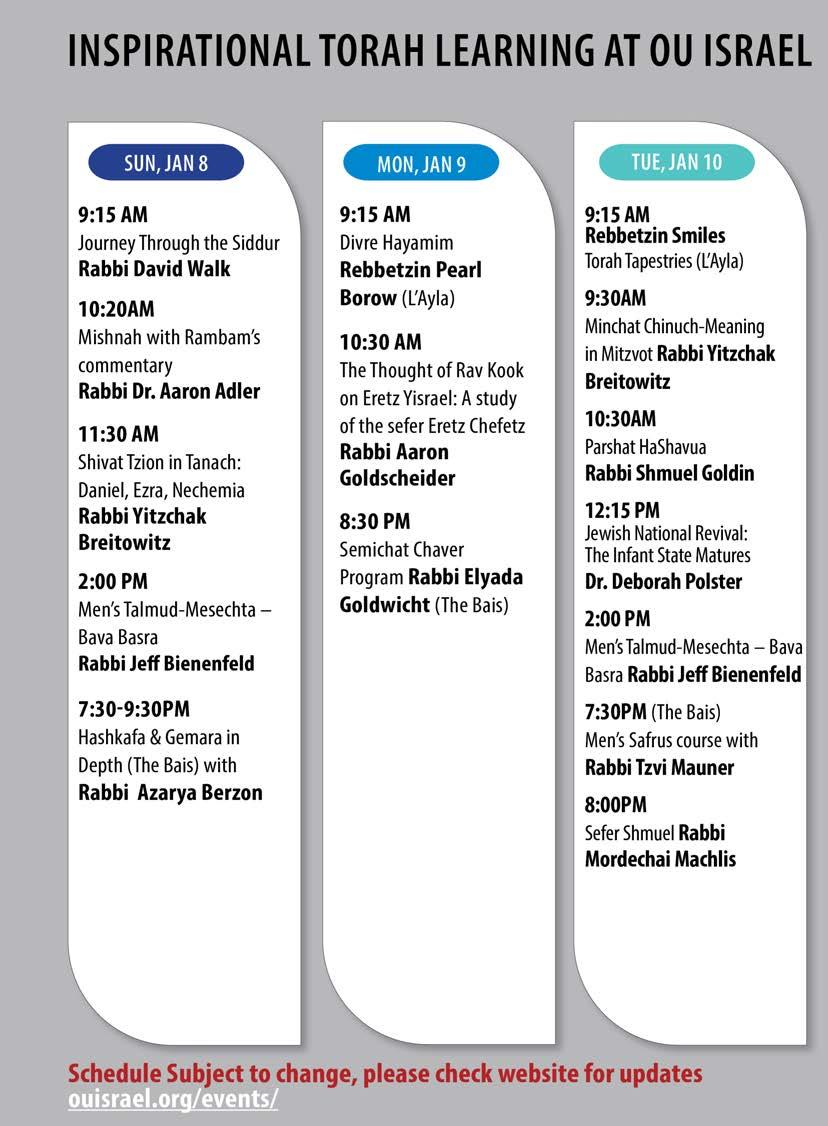
32 TORAH TIDBITS 1499 / VAYECHI 5783
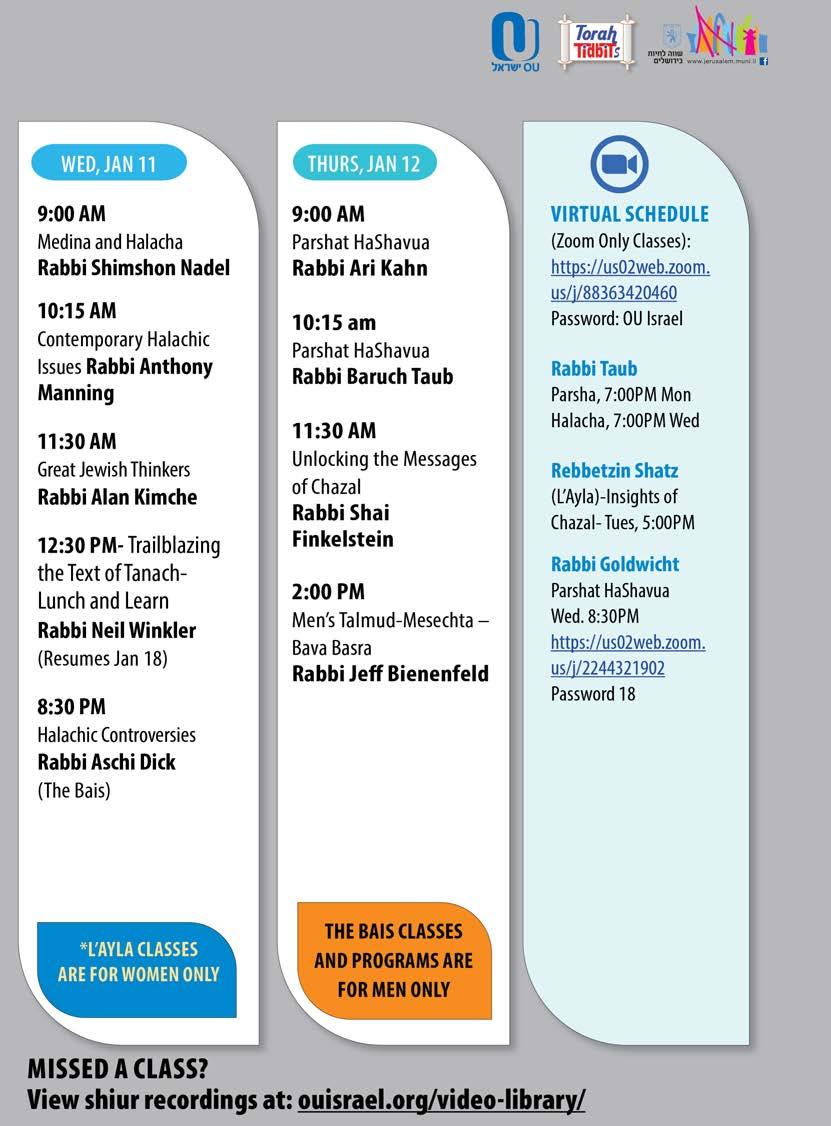
OU ISRAEL CENTER 33

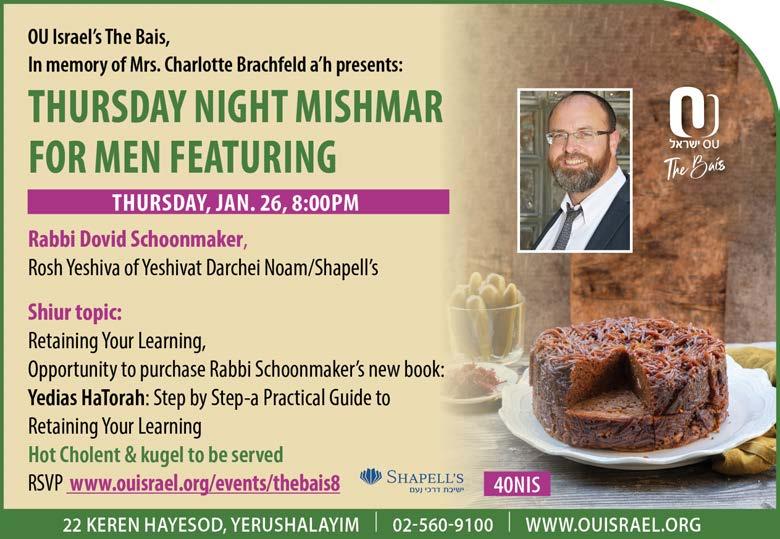
34 TORAH TIDBITS 1499 / VAYECHI 5783
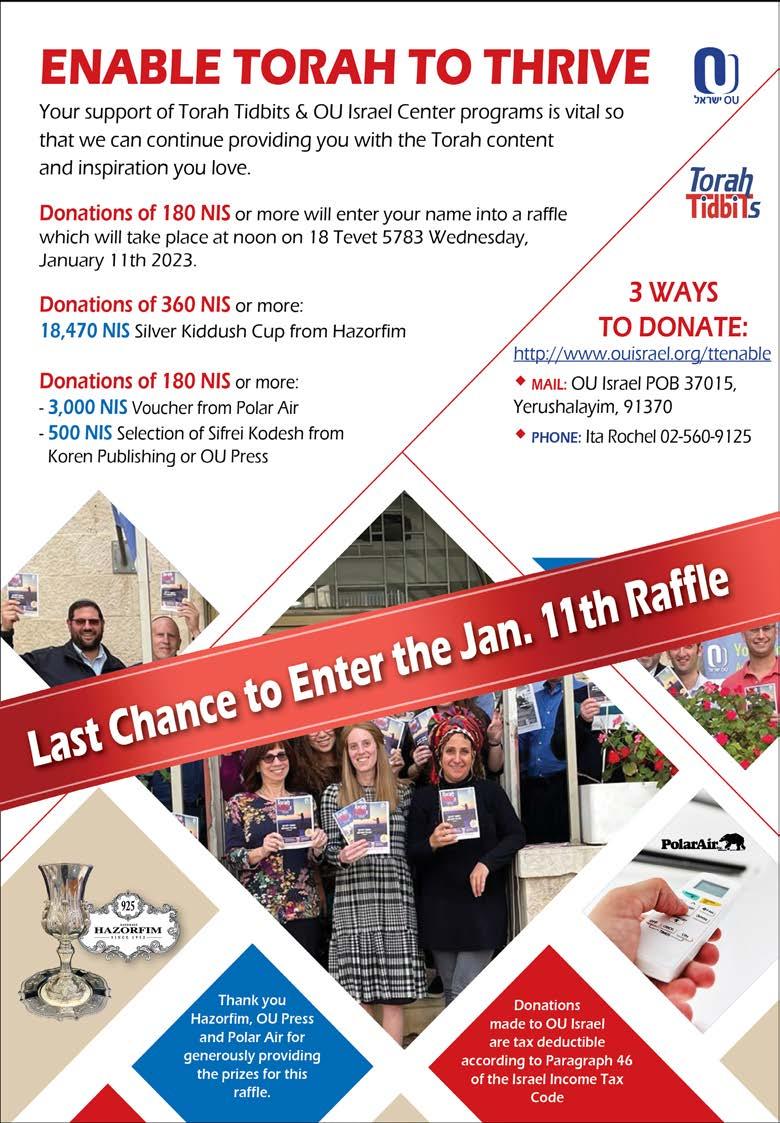
OU ISRAEL CENTER 35

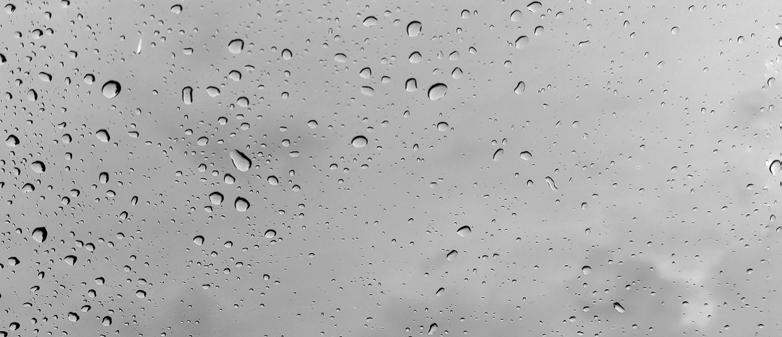
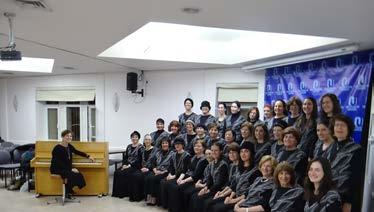

36 TORAH TIDBITS 1499 / VAYECHI 5783 050-906-6713 | www.zacai-banav.co.il For services in English - Noah Kahn: 058-655-0453 | Zacai.banav@gmail.com Israel’s leading waterproofing company Warranty on every job Jerusalem, Merkaz and surrounding areas Balconies, Roofs, Walls, Garages, and More Waterproofing LTD. SINCE 1954 PRI HADASH WOMEN'S WRITING WORKSHOP AT THE OU ISRAEL CENTER Monday mornings 10.30-12.30 For more details, call Ruth 02-628-7359 or Judy 054-569-0410 DOROT - The OU Women's Intergenerational Choir Director Hadassah Jacob 052-384-7230 Monday Evenings 7:00 - 9:00pm GET FIT WHILE YOU SIT: Exercise for ladies Join us on Sundays 12:45-1:30pm at the OU Israel Center Sura Faecher 0504153239 Tuesday, Jan. 10, 7:30pm The New Campaign to Delegitimize Israel: How to Respond Effectively Presenter: David Bedein, MSW, Yeshiva University, Community Organizer & Investigative Journalist To Support David's work: Israelbehindthenews.com/donations
1.5BR, 60m² (48m² Tabu), fully furnished. Storage unit. Ground floor, private entrance with beautiful yard in use. High ceilings. Underfloor heating. Excellent location near Rehavia, Talbiye, & Kiryat Shmuel neighborhoods. NIS 3,200,000 - Tehila: 050-420-5333
FOR SALE
2BR garden apt, 60m² (43m² in Tabu). Yard in exclusive use of about 30m². Newly renovated! Shared storage room. On the sought-after Narkis Street! Perfect location, short walking distance from the city center! NIS 2,830,000 - Tehila: 050-420-5333
Very spacious 3BR apt, 116m², high-level renovation (originally 4BR), new building. 2 bathrooms, central a/c, 3 balconies (22m²), sukkah balcony, storage unit, accessible (elevator), private parking. NIS 3,650,000 - Ouriel: 058-516-1356
FOR SALE
HaDekel St., Mahane Yehuda, JLM
Great 2BR apt in all the action. Full of light and fresh air. Excellent location. Well-kept apartment. 45m². Balcony 4m². Storage unit. Rented 4400/month. 4th floor walk-up. NIS 2,000,000 Mendel: 052-720-3497
6BR penthouse, 172 m² in authentic building. 4 exps, 3 balconies with view. Spacious rooms. Master BR with en-suite & walk-in closet. Jacuzzi. In central quiet area. Close to cafes, synagogues, Stiebelach, and parks. NIS 7,500,000 - Noa: 052-870-2387
FOR SALE FOR SALE FOR SALE FOR SALE
Spacious 4.5BR penthouse, 140m², authentic & preserved building, high ceilings, roof terrace with panoramic view. Pastoral & quiet area, close to the Jerusalem Theater, Emek Refaim, Stiebelach, cafes, parks, and more. NIS 7,600,000 - Noa: 052-870-2387
FOR SALE FOR SALE
3BR (2 living rooms!), 138m², on 2nd floor, balcony, 2 baths. Close to everything. Lots of young families in the neighborhood. Very few homes available. Occupancy: July 2023. NIS 2,050,000 - Mordechai: 052-720-3089
735 m² lot, built 265 m², 60 m² pool, 5 BR, 4.5 bathroom, 20 m² patio. Incl. furniture. Perfect vacation home! Option for rental unit! BBQ, a/c, fireplace, high ceilings. In a pastoral area. Btw Beit Shemesh and Kiryat Gat. NIS 6,350,000 - Noa: 052-870-2387

Look for us: NOAM HOMES






Noam Homes 24 Even Sapir St., Jerusalem 058-793-2222
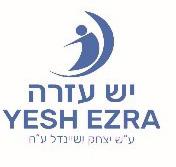
OU ISRAEL CENTER 37 This week: Funds urgently needed for post-operation medicines not covered by Kupat Cholim. • Checks: Make out to “Yesh Ezra” Send to: Yesh Ezra, POB 36156, Romema, Jerusalem • Bank Transfer: Bank Mercantile (17), Branch 642, A/C 79747843, Yesh Ezra • Credit card by phone: Sara at 077-820-0196 (Sun-Thu. 10:00am-3:00pm) • Website: www.yeshezra.org Click on “Donate Now” Inquiries: Menachem Persoff 050-570-1067 menpmp@gmail.com NACHI REALTY 054-461-3943 New building under construction in a great location. 3 rooms only 2.47m shekel. 4 rooms available as well from 3.27m NIS 4 rooms on Chizkiyahu HaMelech in Katamon, 2nd floor, beautifully renovated, 2 full bathrooms. 3.49m NIS MAXI BoX 053-7272-815 ד״סב Storage Your place for extra space Amazing penthouse, Old Katamon, JLM Mitzpeh Yericho (under 30 min from JLM) Spectacular penthouse, Old Katamon, JLM Scan to visit our site www.noamhomes.com Real Estate | Investments | Management services www.noamhomes.com | office@noamhomes.com BS″D Scan to visit our site www.noamhomes.com Real Estate | Investments | Management services www.noamhomes.com | office@noamhomes.com 2020 From
Real Estate
The
HAPPY Passover NACHLAOT Great Investment Property, devided into 3 units!
room
Lot Authentic
room
character and beauty!
your friends at NOAM HOMES
Professionals
TOP 10 Real Estate Office in Jerusalem for 2020 & 2021 (MADLAN)
Beautiful 5
duplex, built to a high standard!
5.5
Home with
BS″D
MALCHA NACHALAT ACHIM GERMAN Noam Homes
Ground floor Apartment, Rechavia, JLM
Renovated apt, Young Arnona, JLM
Garden Apartment, Rechavia, JLM
Amazing Tuscan style House, Moshav Luzit
MISCHEL
AliveRav Yosef Dov Soloveitchik, zy’a, Rosh Yeshiva of Rabbeinu Yitzchak Elchanan and Av Beis Din of Boston, was one of the leading scholars, talmudists, Jewish philosophers and thought-leaders of the generation. Rav Soloveitchik was a teacher par excellence and impacted the lives of thousands of talmidim and musmachim through his shiurim and writings. A scion of the rabbinic dynasty of the Beis haLevi and Reb Chaim of Brisk, “the Rav” was a torchbearer of the Brisker approach to Torah and greatness in Torah.
At a pidyon ha-ben celebration in 1974, when Rav Soloveitchik was in his seventies, he reflected on the awesome role and responsibility of transmitting our mesorah to the next generation.
To me it’s an experience of combining, uniting, merging many generations into one community, where discrepancy of age disappears, where years play no role, and centuries have no significance. Where generations can, so to speak, communicate and commune with each other….
Whenever I start the shiur, the door opens, another old man walks in and sits down. He is older than I am. All the talmidim call me ‘the Rav’… but he is the great one, the grandfather of ‘the Rav’; his name is Reb Chaim Brisker, without whom no shiur
can be delivered nowadays. Then, the door opens quietly again and another old man comes in, he is older than Reb Chaim, he lived in the 17th Century. What’s his name? Shabsai Kohen, the famous “Shach”, who must be present whenever dinei mamonos are being discussed and we study Bava Metziah or Bava Kamah. And then, more visitors show up. Some of the visitors lived in the 11th Century, some in the 12th Century, some in the 13th Century, some lived in antiquity, such as Rebbe Akiva, Rashi, Rabbeinu Tam, the Ra’avad, the Rashba, more and more come in, come in, come in. Of course, what do I do? I introduce them to my pupils, and the conversation commences.
This unity of generations, this march of centuries, this conversation of generations, this dialogue between antiquity and present will finally bring the redemption of the Jew. These great scholars, the living Torah scrolls, the chachmei ha-mesorah, stand for more than their own physical existence. They are links in the chain of Torah, participants in the ongoing dialogue that began at Sinai.
Our sedra records the final moments of Yaakov Avinu’s physical life as he shares parting messages and blessings with his children, charging their missions for the future.
Despite Yaakov having been eulogized, embalmed, and buried, Gemara states
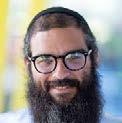
38 TORAH TIDBITS 1499 / VAYECHI 5783
Mashpiah, OU-NCSY Executive Director, Camp HASC Author of Baderech: Along the Path of Teshuva (Mosaica 2021)
RABBI JUDAH
(Taanis 5b) that תֵמ אֹל ּוניִבָא בֹקֲעַי, “Our father Yaakov did not die.” The sages explain: םיִּיַחַּב אּוה ףַא םיִּיַחַּב ֹועְרַז הָמ, “Insofar as his descendants are alive, he himself is alive.” Yaakov lives on through us, his children, and through his mesorah and his righteousness, which were transmitted throughout the generations to those who would carry his influence forward. Indeed, the impact of this ongoing transmission is very much “alive” and present in the world.
On the subject of “Our father Yaakov did not die,” the Lubavitcher Rebbe says that the term ‘afterlife’ is anyway inaccurate, for the experience of the soul after leaving this worldly existence is actually just a continuation of life in another form. The difference is, in olam ha-zeh, this world, life is experienced in one dimension. After 120 years (the human lifespan mentioned in the Torah), the soul moves to exist in its next iteration, yet it also remains as a presence in this world, especially through the continuing impact of its actions and accomplishments in this world, including its descendants. Our sages expressed this fact in their wellknown sayings:
ןהייחבמ רתוי ןתתימב םיקידצ םילודג
“The righteous are exalted in death even more than in life” (Chullin, 7b).
םייח םייורק ןתתימב םיקידצ
“Tzadikim are called alive even in their death” (Berachos, 18a).
In Rav Soloveitchik’s celebrated essay, “Sacred and Profane”, he reflects on the yahrtzeit of his father, Rav Moshe, zt’l:
“It seems to me as if my father were yet alive, although four years have come and gone since his death. It is in a qualitative sense that I experienced his nearness and
spirit tonight. I cannot explain the ונקויד תומד ויבא לש (Sotah, 36b), “the spiritual picture of father” that hovers near me tonight as in a yesteryear of physical existence.
…The Jew of the mesorah has a different conception of time. Revelation and tradition erase the bounds of time. Distance in time is non-existent for him. Thousands of years may have elapsed but he walks back and forth from antiquity to modern times…
For Jewish boys and girls, Avraham is not a mythical figure but an ever-present inspiration. They live through his tribulations and wanderings. They travel with him from Syria to Eretz Yisrael. They feel the fear and trembling of Yitzchak at the Akeidah. They escape with Yaakov to Charan. They are imprisoned with Yosef in the pit. They rejoice in his ascendancy to high office and fame. They lead the Jews with Moshe in the Desert of Sinai. They sing with King David. They are exalted with the prophets. They laugh with Rabbi Akiva. They meditate with the Rambam. These figures are not dead or historical ‘have-beens’ for the children of the cheder or the adults of the halacha, but dynamic, living heroes who visit the Jew from time to time, bring him comfort, inspiration, and hope.”
May our completion of Sefer Bereishis, punctuated by the passing of Yaakov Avinu, enliven us with a sense of responsibility and pride. As we cry out “Chazak chazak v’nischazeik,” may we be truly strengthened, and celebrate the privilege of being a link in the unending chain of Torah. May we pass our precious mesorah along to our loved ones and to the next generations — with the loving care and aliveness of all the true tzadikim.
OU ISRAEL CENTER 39
SIMCHAT SHMUEL
BY RABBI SAM SHOR Program Director, OU Israel Center
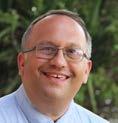
As we conclude this year’s reading of Sefer Breisheet this Shabbat, I feel my heart and thoughts being drawn to the beautiful introduction to Sefer Breisheet penned by the Netziv, Rabbi Naftali Zvi Yehuda Berlin zt’l.
The Netziv writes that our Sages referred to Sefer Breisheet as Sefer Yesharim - the book of the ethical ones, the book of the mentsches. The Netziv explains that our Avot and Imahot are indeed considered to be yesharim- ethical and morally straight individuals.
“This is a great praise for the Avot (and Imahot)-that beyond their righteousness and holiness and devotion and love for Hashem, we could describe them even more so that they were yesharim - they dealt fairly and treated all humanity with love,dignity and respect, as each and every human being is one of Hashem’s creations....”
Rabbi Yosef Breuer, zt”l, the grandson of Rav Shamshon Refael Hirsch zt’l, and founding rabbi of the Khal Adath Jeshurun in Washington Heights, New York, famously wrote these words about the moral code that a Jew must strive to adhere to:
“Kosher” is intimately related to “Yoshor.” God’s Torah not only demands the observance of Kashruth and the sanctification of our physical enjoyment; it also insists on the sanctification of our social relationships. This requires the strict application of the tenets of justice and righteousness which avoid even the slightest trace of dishonesty in our
business dealings and personal life. God’s Torah not only demands of us to love our neighbor in that we concern ourselves with his welfare and property, but it insists further on a conduct of uncompromising straightness (“Yoshor”) which is inspired not only by the letter of the law but is guided by the ethical principle of honesty which, then, would deserve the honorable title of “Yeshurun.”
The Netivot Shalom, the Slonimer Rebbe zy’a, asks an interesting question. If indeed this entire first book of the Torah, is considered to be the book of Yesharim- why does it include the very real human stories, and family dynamics and personal struggles of the Avot and Imahot, what value or message are we meant to gain or glean from these detailed accounts?
The Slonimer Rebbe explains that in order for one to truly become a yashar - a truly fair, just, ethical human being, we must constantly work to refine our character. This first sefer of the Torah, which recalls the earliest giants of humanity and Am Yisrael, presents us with the most fundamental blueprint to living a life of kedusha, the refinement of character, growth and spiritual maturation that each of us must strive for, to emulate our Avot and Imahot and truly become yesharim.
Yehi Ratzon, as we bid farewell for now to Sefer Breisheet, may each of us continue to be inspired by the legacy of our Avot and Imahot, and may we strive each and everyday to emulate their conduct, and live a life of yashrut and mentschlichkeit.
40 TORAH TIDBITS 1499 / VAYECHI 5783
































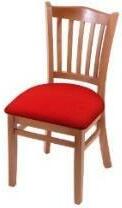


OU ISRAEL CENTER 41 Your perfect vacation GILTOURS Refund Guaranteed! In case of sickness or quarantine Contact our representatives to receive fantastic pricing. Tel. 972-3-6166888 Email: izk@giltours.co.il Join us for an uplifting Pesach at the luxurious Ramada Jerusalem Hotel • Luxurious and spacious rooms • Festive gourmet meals • Activities for the entire family every day of Chol Hamoed • Health club that includes: heated indoor pool with separate hours, sauna and Jacuzzi. • Shiurim during Chag and Chol Hamoed for English-Speakers • Most important - at an attractive price! The best deal! Mehadrin Rabbanut Yerushalayim and non Gebrochts Shemura Matza Shmitta Lechumra U Israel’s LEADING and MOST TRUSTED furniture repair company Glue with us once and you’ll stick with us forever • REGLUING/STRENGTHENING for all your loose & shaky furniture • EXPERT SOFA FRAME & RECLINER REPAIR • SEAT CORE REPLACEMENT - Remove broken wood seat and replace with much stronger wood • CANE SEAT/BACK REPLACEMENT • FURNITURE MARKERS - To help you make those small scratches disappear • LEG TIPS - For quiet chair movement (your downstairs neighbor will thank you!) • TIRED OF HAVING TO CROWD YOUR GUESTS AROUND MULTIPLE TABLES?? Call us to hear about our heavy-duty table slides to more than double (or even triple!) the current length of your table. • INSURANCE QUOTES - We handle hundreds of freight damage claims from overseas as well as local moves. Website: www.thefurnituredoctor.co.il Email: office@thefurnituredoctor.co.il Phone: 02-999-2418 WhatsApp: 058 787 3755
GEULAS YISRAEL
BY RABBI MOSHE TARAGIN R am, Yeshivat Har Etzion
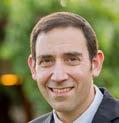
The Shell of History
Ya’akov dies and is promptly embalmed by a team of Egyptian doctors. Mummification in ancient Egypt was often a prelude to a religious funeral followed by entombment in a pagan shrine. Fearing this hideous interment in an Egyptian pyramid, Ya’akov desperately pleaded with Yosef to be buried in Chevron. Yosef dutifully transports his father’s coffin back to Israel. Yosef did not travel alone.
Ya’akov’s funeral procession was accompanied by a full honor guard, flanked with Egyptian soldiers and dignitaries. A cavalcade of the chariots and steeds, proud symbols of Egyptian military supremacy, marched in military formation, honoring the man whose son had rescued Egypt from starvation and catapulted it to worldwide dominance. The procession was the modern equivalent of a 21-gun salute or of an air force flyover.
The spectacle was so unusual and so dramatic that local inhabitants of Israel mistook Ya’akov’s funeral for an Egyptian procession. Witnessing the uncommon pageantry, they assumed that an Egyptian aristocrat had passed and declared - םירצמל דבכ לבא it is a sad day for Egypt. They had no clue that all the fanfare surrounded Hashem’s chosen nation. At the tail end of sefer Breishit, Hashem’s
original beracha to Avraham of ךמש הלדגאו finally came to fruition. His grandson’s burial in Israel was an international event.
Expecting a Skirmish
There was a second, and more sinister reason that soldiers and chariots chaperoned Ya’akov’s final journey. Everyone was expecting resistance. Ya’akov’s body would not be buried in Chevron without a fight. Fierce opposition was expected from Esav’s family, still bristling at being supplanted by Ya’akov. Yosef’s prediction wasn’t wrong, and his decision to arm himself was prescient.
Josephus chronicles the burial and his account (cited by some Commentators) mirrors statements in the midrash. As this was Esav’s final opportunity to reverse the historical disaster of abdicating the bechor rites to Ya’akov, one of his grandsons ambushed the funeral procession at Chevron. Previously, when Ya’akov had returned to Israel after leaving Aram Nahara’im, Esav was kind enough to grant him safe passage. No one, however, viewed Esav’s generosity as his ceding the bechor title to Ya’akov. Esav had merely granted a temporary armistice, permitting a reunion between Ya’akov and his elderly parents. It was a humanitarian gesture not a rapprochement.
By the time Ya’akov passes, Yitzchak is long deceased, and the war over the title of first born was reignited. The brother who would be buried in the Me’arat Hamachpeilah would lock in the bechor status, and endow
42 TORAH TIDBITS 1499 / VAYECHI 5783
his family with historical legacy. Anticipating these hostilities, Yosef mobilized a collection of Egypt’s finest warriors to combat Esav’s militia. A skirmish erupted and Yosef, aided by his Egyptian mercenaries, defeated Esav, thereby consolidating Ya’akov’s space in Me’arat Hamachpeilah and his place in history.
Settling Israel

Ya’akov’s burial also reinforces Jewish settlement in the Homeland he had abandoned 17 years earlier. We had been promised the Land of Hashem, but unsurprisingly, settling the Land had proven harder than expected. Such is life in the Land of G-d. Throughout Breishit, Avraham and his children were only moderately successful in establishing a foothold in Israel. Avraham, himself, lived as an itinerant traveler being hosted by numerous landlords and friends. Yitzchak tried his

OU ISRAEL CENTER 43 A new project in Jerusalem! No apartment purchase or purchase taxes involved! Guaranteed returns 27 year track record Strong securities 3 year investment program Very low risk 3 year Call our investment expert Moshe Ehrlich today to hear about our latest investment opportunities! Invest@bemuna.co.il www.bemuna.co.il 050-551-3221 הנומאב ריע הירומה A safe alternative for your investment funds! Invest with The stock market is plunging? Looking for a stable and safe alternative for your funds? Invest with Bemuma today, and receive a guaranteed return!
054-527-9356 DIRTY AIR, DAMP & MOLD GREEN TREATMENT EXPERTS - Corona Cleaning - Deodorization - Leak Detection Systems - Waterproofing - English + Hebrew Reports - Working at heights - Insured - Quality House Painting QUICK ESTIMATE/FREE ADVICE :)
hand at farming, but his attempts to irrigate water ways and build homesteads were constantly thwarted by quarreling neighbors. After his stay with Lavan, Ya’akov returned home, but his best efforts to gentrify the outskirts of Shechem were blown up by the assault on Dinah and the military response of his children. One step forward, two steps back.
The only enduring land acquired by the nascent Jewish tribe was a small burial site purchased by Avraham. Though everything had been legally acquired, Jewish ownership of this land wasn’t firmly entrenched. Sarah’s burial was a public event, but her burial was seen as a humanitarian gesture providing a burial solution for a grieving husband. Avraham, Yitzchak, Rivka and Le’ah who all had lived nearby were quietly buried in the family cemetery but none of their funerals significantly “moved the needle” of Jewish settlement of Israel. Their burials in Chevron were private family affairs.
Ya’akov’s burial was large and public and had broader connotations. After an absence of 17 years, the return home of Ya’akov’s body lays claim to Israel as the Jewish Homeland. Ya’akov’s burial is more than a funeral procession, it is also the reinforcement of Jewish settlement and presence in Israel. All this, aided by Egyptian military support. Effectively, Jewish selection and Jewish settlement of Israel were each enabled by Egyptian influence, without which Ya’akov’s burial may not have occurred. Without the Egyptian forces, Yosef and his brothers may not have overcome Esav’s militiamen, and our settlement of Israel would have lagged. The first lasting Jewish settlement of Israel was reinforced by the presiding superpower
of the time. This would not be the last time we returned home with the assistance of a dominant superpower.
A Persian Carpet Ride
In the 6th century BCE, during our Babylonian exile of seventy years we would find ourselves, once again, dependent upon a foreign superpower for our return home. It would take a decree by the supreme monarch of Persia to jump start the process of Jewish resettlement of Israel. Koresh authorized our return to Israel and fronted our initial efforts to rebuild the Mikdash. Without Persian intervention and financial support our return would have been impossible. Though the initial return stalled, it laid the groundwork for the eventual homecoming of Ezra and Nechemiah. First, Egypt sponsored our return and subsequently Persia backed Jewish settlement of Israel. Toward the end of history, a different superpower would emerge to return us to Israel. We know that superpower as the United States of America.
On the Wings of a Bald Eagle
Many historical factors facilitated our return to our Homeland. The tumultuous 20th century saw monarchies fall, borders drawn and redrawn, and a new world order emerging from the chaos of two calamitous world wars. The wars themselves significantly influenced our return to Israel. Without WWI it is doubtful that we would have received the benefits of the Balfour declaration. Sadly, the post- WWII climate created a sympathetic climate inviting a solution to the plight of the Jewish refugees. Additionally, the rise of nationalism in the 19th and 20th century was perfectly timed to awaken Jewish nationalism.
44 TORAH TIDBITS 1499 / VAYECHI 5783
Alongside these historical factors favoring our return, the support of the United States and her post-war Western allies was indispensable to our return to our ancient Homeland. These countries literally voted the State of Israel into existence and continue to support her militarily, diplomatically, and financially. Once again, our return was enabled by a foreign dominant superpower.

Streaming Through History


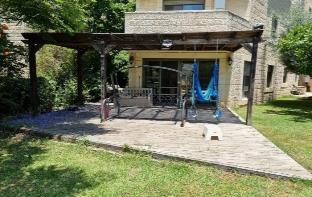
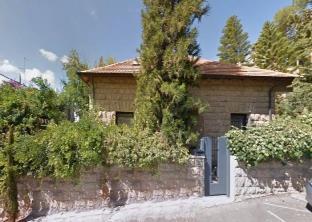


You would imagine that heavenly land delivered to a Godly people should be delivered independent of human political factors. But Jewish redemption redeems human history and therefore Hashem desires that geula flow through human history rather than hovering above it. For this reason, our voyage back to Israel was always assisted by superpowers and by international political dynamics. It may be frustrating to us, and its pace may be bogged down by international political considerations, but that is the price of being chosen to spearhead history. Without redemptive lenses the international role in returning us home may not be apparent. Ya’akov’s journey back to Israel was camouflaged as an Egyptian funeral procession. Koresh’s approval of our return was seen as part of his larger doctrine of population reparation and preservation of human rights. Cyrus the Great sought to repair the moral crimes of the Babylonian rulers and his role in rebuilding the Mikdash was seen by most as part of a broader historical phenomenon. This is how Hashem delivers redemption – through, not apart from human history. Look beyond politics and history and you will see redemption. Look beyond rulers and diplomats and you will see Hashem. בשוי ןנולתי יקש לצב ןוילע רתסב




OU ISRAEL CENTER 45
Amazing Penthouse #052-6984466 9 R | 6 BR | 340 SQM | 6 B | 2 floors | 2 terraces with views | 4 parking spaces | 2 storage units In the heart of Old Katamon #052-2670008 5 R | 150 SQM | elevator | parking | balcony spacious & bright | 6,900,000 NIS Arnona #050-7225694 8 R | garden | balcony | renovated | accessible spacious living room | separate unit Gilinski Real Estate gilinski.co.il
Authentic Jewish Creativity
Authentic Israelite creation, in thought and in life and action, is attainable only in the Land of Israel. (Eretz Chefetz 2:5)
In order to explain Rav Kook’s assertion above, it is beneficial to examine Rav Kook’s friendship with the illustrious Israeli writer Shai Agnon. The two overlapped while living in Israel, first in Jaffa for a few years, and later in Jerusalem in 1924 until Rav Kook’s death in 1935.
In a lengthy memoiristic piece about Agnon’s relationship with Rav Kook, Agnon recalls: “Our great teacher, Avraham Yitzchak ha-Kohen Kook, may he be remembered for blessing - how close he drew me in! In his humility he was kind enough to read my story Ve-Haya he-Akovle-Mishor, which was then still in manuscript. When he returned it to me he said in these exact words, “This is an authentic Hebrew/Jewish story, flowing through the divine channels with no barrier.” (S. Y. Agnon, MeAztmi El Atzmi, Shoken Publishing 1999, p. 201, for more on this topic see ‘Tradition’ 49:2, 2016, ‘A Portrait of Two Artists At the Crossroads”, Saks).
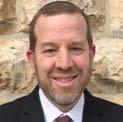
Rav Kook once gave a gift to Shai Agnon. It was his newly published collection of letters (Igrot Haraaya). The title page bears a dedication to Agnon in Rav Kook’s handwriting, departing from his customary inscription of “Birkat ha- Kohen” (“With the blessing of the Kohen”), he chose another phrase: “be-Hibbat ha-OMan”“with an artist’s affection.” (ibid.)
For Rav Kook, both of them, the rabbi and the author, were engaged in artistic production.
Rav Kook wrote poetry. Agnon wrote in a unique genre incorporating traditional learning in the form of a contemporary novel.
A second example of Rav Kook identifying a writer who was articulating a uniquely Jewish viewpoint in his writing was the poet Yosef Zvi Rimon, whom he envisioned as the first in a line of poets in reborn Eretz Yisrael who would provide works suffused with Godliness.
In 1932, on the twenty-fifth anniversary of Rimon’s literary activity, there was issued in his honor Choveret haYovel… Yosef Zvi Rimon, edited by Pinchas Grayevsky. The booklet opens with a letter of blessing from Rav Kook, who writes:
‘The time has come to wake up, to give honor and strength to the poet who is unique in our time, for all his thoughts and the flight of his song flow from the living spring of Israel, its eternity, its might,
46 TORAH TIDBITS 1499 / VAYECHI 5783
Editor, Torah Tidbits
RABBI AARON GOLDSCHEIDER
and the holiness of its soul.
It may be that he is the one who is likely to open the way of holiness in the new poetry of Israel. After a silence of hundreds of years, she has opened her mouth to speak about great things.
Let us hope that in the days to come, he will not just be one of the poets, but an example of the future poets of Judah, who will proudly celebrate the name of the name of Lord, Rock of Israel.”
(The Koren Rav Kook Siddur pp. 527-528).
Rav Kook himself was a gifted poet. An exquisite example of Rav Kook’s poetry is a soaring piece known as “The Four-Part Song”:
‘There is one who sings the song of the individual soul. This person finds everything inside the soul and experiences in it total spiritual fulfillment.
Then there is one who sings the song of the nation, leaving the boundaries of the individual soul, which are found to be too narrow and not idealistic enough. This person yearns for great heights and unites with the entire Jewish people with deep love. Pained by the nation’s suffering, finding happiness in its dreams, the one who sings the song of the nation is immersed in deep thoughts concerning its past and future, and tries to understand its inner spiritual nature with love and a wise heart.
Then there is one whose soul is so all-encompassing that it expands beyond the limits of the Jewish people: the one who sings the song of humanity. This person’s spirit ascends and becomes concerned with the greatness of mankind and its
divine image, seeking humanity’s ultimate purpose and looking forward to its ultimate perfection. From this source of life, the singer of the song of humanity draws all thoughts and insights, ideals and visions.
Then there is one who rises even higher to unite with the entire world, with all creatures, and with all existence. And with all of them, the singer of the song of all existence sings. This is a person who is immersed in Perek Shira each day, who is guaranteed the world to come.
And then there is one who rises up with all these songs together. Each gives its voice. Each plays its melody; the song of the soul, the song of the nation, the song of humanity, and the song of existence. All harmonize within the ideal human being at every moment and at all times.’ (Orot HaKodesh 2, pp. 444-45, translation from ‘The Spiritual Revolution of Rav Kook, pp. 7-8)
The poem above powerfully illustrates Rav’s Kook’s unique assertion that with the return to the Land a creativity of thought, a new found inter-relationship with the nations of the world, and a sensitivity to nature that had been severely hampered in long exile will come to life again.
On HaPalmach - great 4 room apartment, 92m plus large garden in use, exclusive. Asking 4.95 million NIS In a good area in the Moshava2 apartments (can be connected), 1st floor, 170m, renovated, Sukkah porch, parking Palmach - 4 rooms, garden apt. about 100m asking 4.95million NIS
Smadar 050-3114040 // 02-642-4329 smadi_bida@walla.co.il

OU ISRAEL CENTER 47


48 TORAH TIDBITS 1499 / VAYECHI 5783 UNITED HATZALAH EMT COURSE Come Join us! FOR OUR INTERNATIONALLY RECOGNIZED EMERGENCY MEDICAL TECHNICIAN HYBRID ACCELERATED COURSE COURSE INCLUDES IN PERSON AND ONLINE LEARNING THOSE WHO COMPLETE ALL COURSE REQUIREMENTS AND EXAMS WILL RECEIVE BOTH NREMT AND ISRAELI CERTIFICATION 050-8763551 ARID@1221.ORG.IL COST $1500 EXPERIENCE OF A LIFETIME! LIMITED SPACE AVAILABLE! JANUARY 2ND, 2023 - MARCH 22ND, 2023
Be’er Tziporah a"h - Bottled Water Gemach








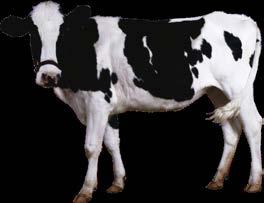






















Walking down King George St. in Jerusalem and want a cold bottle of water? Come help yourself to a bottle at 52 King George. In loving memory of Yoni’s wife Tziporah a"h, a true Eishes Chayil, always full of chessed, kindness and laughter, and brought life and strength to so many people, that she touched! She was like Aron, who loved peace and pursued peace. Yoni thanks Hashem for having the opportunity of having Tziporah in his life, to learn of her caring, patience and happiness, to overcome her challenges. May Tziporah's Neshama be a light onto the world, in a time of darkness, and may her Neshama shine to Gan Eden. Yoni misses Tziporah with tears in his eyes, as Hashem gave him a gift, a crown jewel, now he returns her to Hashem. With thanks and Toda. Love, Yoni To help refill the supplysend tax deductible donations for Be’er Tziporah a"h Bottled Water Gemach to Chabad of RechaviaRabbi Yisroel Goldberg email Rabbi@JerusalemChabad.org


Science, Technology & Halacha A 5-part series on cutting edge technology and halacha being given Wednesdays at 8 p.m. by Rabbi Joel Kenigsberg. Begins January 18, 2023 BEIT KNESSET HANASS 24 Ussishkin Street, Jerusalem Shiurim are in person and on Zoom. Free admission. For details, visit www.bkhanassi.com Tzurba M’Rabanan A weekly shiur on practical halacha being given every Sunday at 10 a.m. by Rabbi Joel Kenigsberg Flying Soon? Travel with Confidence 1UniTravel - Medical Insurance at great prices Choose from multiple options 1unitravel.brokersnexus.com 1UniSim - Sims for USA and Worldwide Starting at $40 sales@1unisim.com Call 077-400-3199 or USA 718-715-0001
02 800-1717 www.JerusalermChabad.org/DonateShekels בוט יכ 'הל ודוה
TOWARDS MEANINGFUL TEFILLA
BY REBBETZIN ZEMIRA OZAROWSKI Director of OU Israel L’Ayla Women’s Initiative

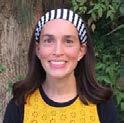
My six-year old daughter Shalva turned to me this week and said, “Mommy, why is Hashem doing so many bad things to me this week? First He gave me a cold, then He gave me a headache and a fever, and now I can’t find my doll”. I had about five seconds to contemplate a response. My initial thought was that this didn’t sound like the most positive of outlooks. But at the same time, I was blown away by how easily and naturally Shalva knew to attribute every situation, whether good or bad, to Hashem! After catching my breath, we entered into a six-year old level discussion of how we don’t understand why Hashem does things, but He always has our best interest in mind, we just can’t always see it right away, and how we can try and focus on the positives in whatever situation He has placed us in. (like the fact that she got to sleep in Mommy’s bed when she was sick, and that she got better relatively quickly etc.)
As I began learning about the 4th bracha in Birchat Hamazon, ביטמהו בוטה, I thought back to this conversation. Gemara Berachot 48b explains that this bracha was instituted by Rabban Gamliel and his Beit Din in Yavneh, after they were given permission from the Romans to bury those who had died in the Bar Kochva Revolt at Beitar. After the revolt, the Romans had prohibited the Jews from burying those who had died. Now, a few years later, they had finally been granted permission to do so. On that day, they
instituted the bracha of ביטמהו בוטה, recognizing that Hashem is both בוט- that He made sure that the bodies did not become foul-smelling and ביטמ – that He enabled the bodies to finally be buried. Chazal decided to add this bracha into the daily bentching.
At first glance, this seems like a very random topic to include in our bentching. What does burying the dead have to do with saying thanks to Hashem for our food? But if we understand bentching as being the opportunity to truly show our gratitude to Hashem in a broader sense, then this idea fits right in.
As we learned in previous articles, we began the bentching with a very direct thanksgiving to Hashem in the present for the food that He gives us. But we didn’t leave it there, because if we only thanked Hashem for the food, it would mean that we failed to see the bigger picture. In the second paragraph, we moved into the past and thanked Hashem for taking us out of Egypt and forming us as His nation, through creating a Brit with us and giving us the Torah, so that we receive and settle the land of Israel and serve Him best there.
We continue from there to the future, asking Hashem to enable us to serve Him in the best possible way with reinstatement of Malchut Beit Dovid and the building of the Beit HaMikdash. Our thanksgiving doesn’t remain only in the present, thanking Hashem for our current physical
50 TORAH TIDBITS 1499 / VAYECHI 5783
nourishment, but rather opens up to let us see the big picture, to look at the past and the future, and understand all that Hashem does for us in order to fill our role, both as individuals and as a nation.
The fourth bracha takes our thanksgiving one step further. We need to learn to thank Hashem for everything, even things that don’t always seem so great at the outset. One easily could look at the situation following אבכוכ רב דרמ and see it in a pretty negative light. Things did not look good. And yet the Jews were able to search for the positive and to view the fact that they were finally given permission to bury their own dead and the fact that the bodies didn’t decay, as a .”הבוט תלפוכמו הלופכ” This is a true lesson to us in gratitude.
Rabbi Eliyahu Munk explains in his book “Olam HaTefillot” that this fourth bracha was really written with all of us in mind. Many of us have trouble properly thanking Hashem for all He does for us because we are still waiting for some of our personal requests to be granted. We get stuck in what we are lacking and fail to see the rest of the great kindnesses that Hashem has given us in abundance. This fourth bracha teaches us to look at all that we have to be thankful for, even when things are not looking great.
the time focusing on the fact that He is ours. He has a personal relationship with each and every one of us. He is the King who is ביטמו בוט for everyone - He is kindly performing extra kindnesses for all of us, even when we don’t see it right away. And this is a constant – םויו םוי לכב, every single day, ונל ביטי אוה ביטמ אוה ביטה אוה, He is good to us in the past, present, and future. אוה ונלמג אוה דעל ונלמגי אוה ונילמוג, He has given to us and continues to give to us in the past, present, and future forever. We go on to use 15 different words to describe all the goodness He grants us – “בוט לכו םולשו....דסח ,ןח”. Chazal say that the reason we use 15 words is to parallel the average amount of 15 meals per week (with the assumption of 2 bread meals per day during the week, and 3 bread meals on Shabbos), again driving home the message that at every single meal, at all times, there is always what to be thankful for.
And so that is the message to Shalva and to all of us, that even when we are going through difficult times, we need to always be on the lookout for the good, focusing on all of the positives that Hashem does for us and every single moment. We are given the opportunity to remind ourselves of this important perspective every single time we bentch.
We call Hashem our Father, our King, our Mighty one, our Creator, our Redeemer, our Maker, our Holy One, our Shepherd – all of
OU ISRAEL CENTER 51
,ּונֵּכְלַמ ,ּוניִבָא לקָה ,םָלֹועָה ְךֶלֶמ ,ּוניקֹלֱא 'ה הָּתַא ְךּורָּב ּונֵעֹור ,בֹקֲעַי ׁשֹודְק ּונֵׁשֹודְק ,ּונֵרְצֹוי ,ּונֵלֲאֹּג ,ּונֵאְרֹוּב ,ּונֵריִדַא אּוה םֹויָו םֹוי לָכְּבֶׁש ,לֹּכַל ביִטיֵּמַהְו בֹוּטַה ְךֶלֶּמַה ,לַאָרְׂשִי הֵעֹור אּוה ,ּונֵלְמֹוג אּוה ,ּונָלָמְג אּוה ,ּונָל ביִטיֵי אּוה ,ביִטיֵמ אּוה ,ביִטיֵה ,הָחָלְצַהְו הָלָּצַה חַוֶרְלּו םיִמֲחַרְלּו דֶסֶחְלּו ןֵחְל ,דַעָל ּונֵלְמְגִי ,םֹולָׁשְו םיִּיַחְו םיִמֲחַרְו הָלָּכְלַכְו הָסָנְרַּפ הָמָחֶנ ,הָעּוׁשיִו הָכָרְּב .ּונֵרְּסַחְי לַא םָלֹועְל בּוט לָּכִמּו ;בֹוט לָכְו
לייא תולבוה ד״סב www.premiummoving.co.il MovingPackingStorage 053-7272-815
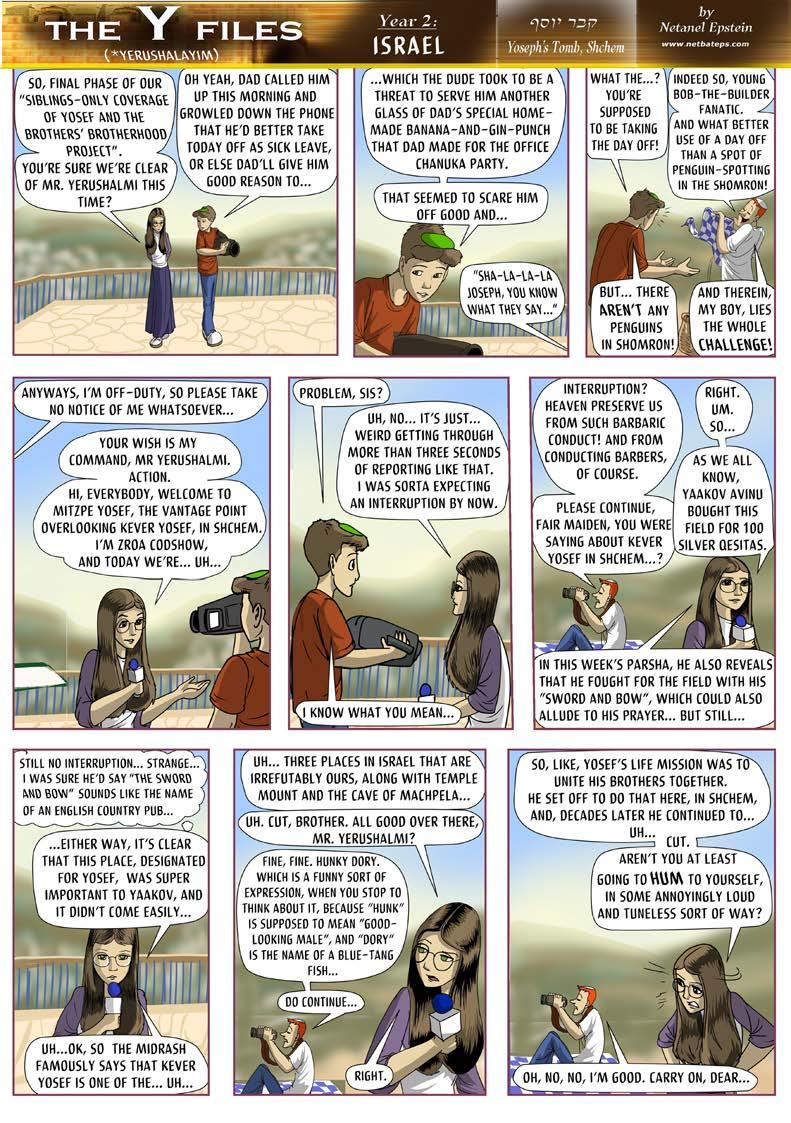
52 TORAH TIDBITS 1499 / VAYECHI 5783
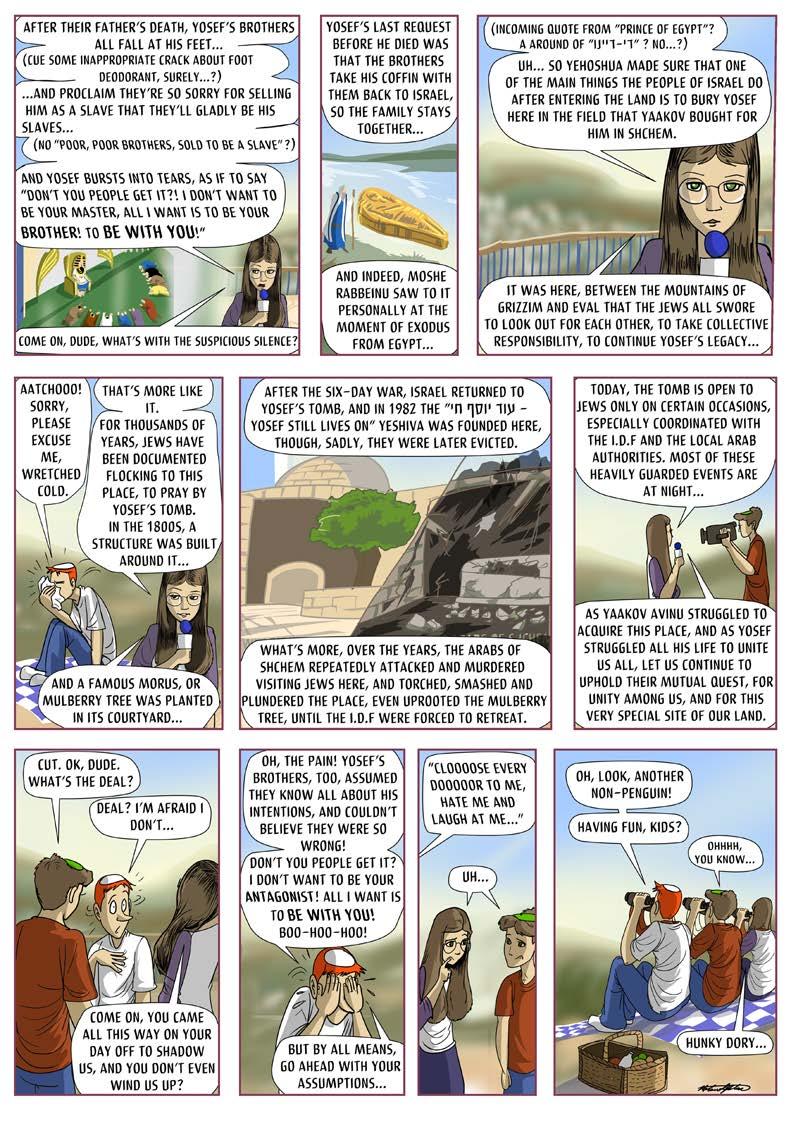
OU ISRAEL CENTER 53
Jordan Landes Hometown: Boca Raton, Florida

Community: Reichman University - Herzliya, President Emeritus MizrachiOU JLIC Herzliya

Parshat Vayechi delivers a beautiful ending to Sefer Breishit as well as a glimpse into Sefer Shemot and what will be the start of many difficult years for the Jewish people, culminating in a return to the precious land of Israel. Vayechi goes into detail about each of the 12 tribes, describing various roles and appointments. Judah would produce kings, Judges from Gad, Scholars from Isaachar, and so on.
But it’s interesting why Hashem would give Jacob the thought to assign these roles and designations to his family ahead of many years of slavery. Rashi tells us that these brachot given to the tribes were their destiny. However, none of these tribal prophecies would come true until much later on. Why now on the eve of hardship?
I believe this scene at the end of Sefer Breishit is a powerful message about
REBBETZIN SHIRA SMILES
vision and unity. Jacob knew that there was trouble ahead for the Jewish people. It’s why he spent so much of his life trying to specifically stay away from Egypt until eventually, his own family brought him there. He knew the tide was going to turn. Jacob gave his family these brachot because despite the slavery that he knew was ahead for his family he had a vision of a great nation returning to a great land. And this vision could only happen with his family united with a purpose. United with a role. United in the belief that they were a part of something bigger than themselves. That is the message of this week’s parsha. Literally- Vayechi, to live.
Tribute to the Trio
In a deeply powerful scene, Moshe Rabbeinu is found with his hands held high on top of the mountain praying for the people gripped in a raging battle with Amalek below. Ahron and Chur stood on either side of Moshe Rabbeinu holding his hands aloft (Shemot 17;10). Rashi teaches that Chur was the son of Moshe’s sister, Miriam. What more do we know about Chur? What is the symbolism of his joining with Ahron to support the hands of Moshe Rabbeinu?
I am beyond grateful for the opportunity to be living in Israel and to take part in the building of a wonderful JLIC community in Herzliya in partnership with World Mizrachi. In many ways, our JLIC communities are full of individuals seeking to find their own roles and purpose as the story of the state of Israel continues.
Many of us have come to Israel with different backgrounds, we study different subjects, work in different fields, and fight different battles. But what unites us
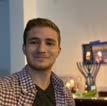
on stood and teach people calf Chur, person like qualities relationships path, whenever service shamayim example These Rabbeinu approaches have Amalek,


54 TORAH TIDBITS 1499 / VAYECHI 5783
OU-JLIC
TRANSFER YOUR OLD FILM/VIDEO's (All formats) In Quality to Digital Preserve Family History from Fading Michael 052.286.8626 Photography with feeling Facebook.com/L'Dorot Photography 26 TORAH TIDBITS / BESHALACH 5781
Orthodox Union Heshe and Harriet Seif Jewish Learning Initiative on Campus
Rabbi Roberts in Through the Prism of Torah explains that Ahron and Chur personified contrasting character traits. Ahron was a peacemaker, he constantly looked for ways to create harmony among his people. Indeed, he was ready to compromise his own values to achieve this goal, as we see in the story of the sin of the golden calf. Chur, For In 4 elevator, character, of For house, renovation, bathroom, asking
all is our love and passion for this country. In Herzliya, Givat Shmuel, Tel Aviv, Jerusalem, and all around this great land, the new leaders of this nation are preparing to step up.
There has never been a greater time for young students and professionals to join our communities in Israel. We have the opportunity to continue the legacy of these brachot given to the tribes of Israel and find innovative ways to bring people together and build our nation stronger.
Vayechi is the ending of Sefer Breishit but it is just the beginning of the Jewish people’s story, and even here today in 5783/2023, we’re just getting started building JLIC Israel with hundreds of inspired olim ready to take charge.
“Chazak Chazak Venitzchazek”
The OU’s Jewish Learning Initiative on Campus (JLIC) is creating and nurturing vibrant religious communities in Israel to support English-speaking college students and young professionals. JLIC Israel’s goals include: building a warm and welcoming Jewish community for students and young professionals; providing engaging and dynamic Jewish education; providing a supportive home environment for Olim; providing resources for personal and religious growth, including personal mentoring, Aliyah support, religious guidance and leadership development. Current JLIC programs in Israel include: Reichman University - Herzliya; Bar Ilan University - Givat Shmuel; Tel Aviv University; Tel Aviv for Young Professionals; and Jerusalem. Contact: Rabbi Jonathan Shulman, Director of OU-JLIC in Israel shulmanj@ou.org
SHIUR SPONSORS
Sunday, January 1st - Rabbi David Walk’s shiur is sponsored by Anna & Simon Wiseman in memory of Natan Meir ben Shimon Hacohen z”l - Yahrzeit 18 Tevet Sunday, January 8, Rabbi Adler’s shiur and Tuesday, January 10 - Rabbi Goldin’s shiur are sponsored by Rachel & Yochanan Elrom in honor of the Bat Mitzvah of their granddaughter Tuesday, January 10th - A Morning of Learning has been sponsored by the Rapps Family in memory of ל”ז םייח ןב ןבואר ברה - Ruby Davis z”l
Rabbi Goldscheider’s shiur has been sponsored for the 2023 Academic Year ל’’ז המלש ןב בוט םשו ה’’ע םהרבא תב םירמ תמשנ וליעל
Rebbetzin Shira Smiles shiur is sponsored for the 2023 academic year by Dr. & Mrs. Menachem Marcus in memory of their parents, Rose & Dr. Emanuel Marcus z”lל”ז סוקרמ השמ ןב יכדרמו ריאמ ףסוי תב לזייר Rosi and Ernest Strauss z”lל”ז סוארטש דוד ןב לאינדו םהרבא תב דומיל
Rabbi Breitowitz’s Tuesday Shiur - Minchat Chinuch is sponsored for the academic year 2023 by Rabbi Refoel & Sharon Auman in memory of their parents Edith & Reiner Auman z”l ד”יה לאפר תב ה”ע רתסאו ל”ז קודצ ןב הנוי and their son Rabbi Shmuel Eliyahu Auman z”l י”נ לאפר ברה ןב ל”ז והילא לאומש ברה
Rabbi Goldin’s shiur is sponsored for the 2023 academic year by Dr. & Mrs. Menachem Marcus in memory of beloved aunts Irma Haas a”h and Hilde Myer a”h
Rabbi Manning’s shiur has been sponsored for the 2023 academic year ל’’ז ןמלק ןב גילזו ה’’ע תידנרב תב הנרב תמשנ יוליעל
Rabbi Taub’s weekly Thursday Parshat HaShavua Shiur is sponsored by The Jewish Legacy Foundation
OU ISRAEL CENTER 55
...המלש האופר • Miriam Tovah Chaya bat Chanah Elisheva Rivka •Yosef Ezriel ben Chaya Michal הלחמ ןב ןתנוהי • רתסא ןב המלש • לזייר הניס ןב ץרה ילתפנ • הכרב הנח ןב השנמ םהרבא • • Esther Fruma bat Baila • Yisrael Leib ben Chana LAYA SCHOLAR Developmental Specialist/Infant Educator (birth - 2 yrs.) Strategies based on latest research in early infant brain development. 054-683-0092 layascholar@gmail.com
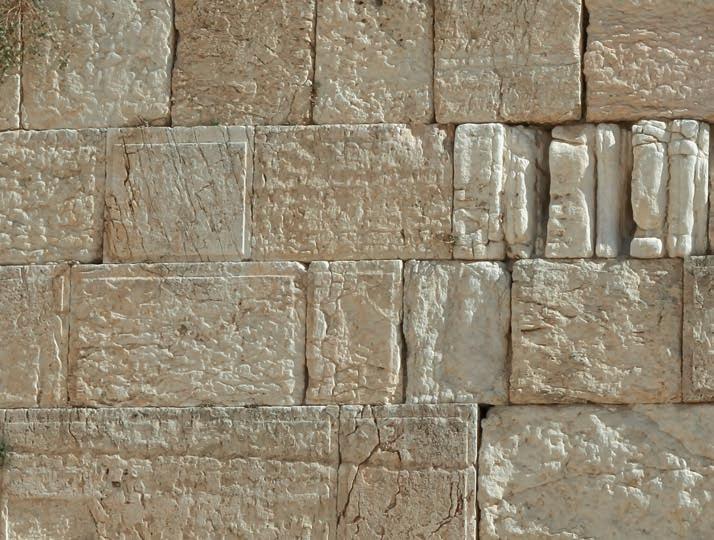

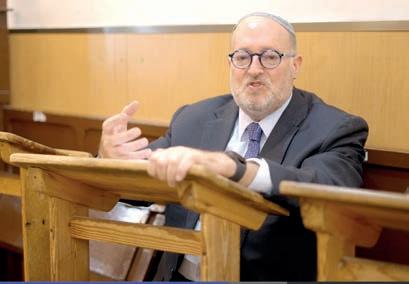
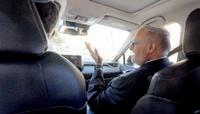
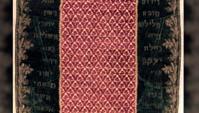

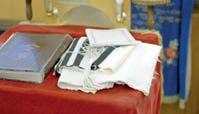

56 TORAH TIDBITS 1499 / VAYECHI 5783
Join OTS President and Rosh HaYeshiva Rabbi
Brander for 2 minutes each week
locations
hidden messages
our
valuable lessons
ots.org.il
OHR
TORAH
STONE ANNOUNCES THE LAUNCH OF OUR NEW VIDEO SERIES: If These Stones Could Speak
Dr. Kenneth
as he explores unique
across Israel and asks whether
from
past might hold
for a better future.

OU ISRAEL CENTER 57
TORAH 4 TEENS
BY TEENS NCSY ISRAEL


Rabbi Yosef Ginsberg Regional Director, NCSY Israel

Too Frum
One of the most dramatic moments in Jewish history occurs in this week’s Parsha. Yaakov Avinu, the namesake for the national of Israel, Am Yisrael, is on his deathbed. His children, our tribes and Yaakov’s legacy, are asked to approach their father for his last parting words with each of them. One by one he gives them unique blessings as each son is a future tribe and all are great Tzaddikim. In comes Shimon and Levi, Jews named after them till this day for their great righteousness. Yaakov, their father, opens his mouth with the following ‘blessing’:
“Simeon and Levi are brothers; stolen instruments are their weapons. Let my soul not enter their counsel; my honor, you shall not join their assembly, for in their wrath they killed a man, and with their will they hamstrung a bull. Cursed be their wrath for it is mighty, and their anger because it is harsh. I will separate them throughout Jacob, and I will scatter them throughout Israel.”
This is in response to the episode of Shimon and Levi wiping out Shechem for taking advantage of their sister Dina.
With all the questions that one can have
on the act of Shimon and Levi in Shechem, these are Yaakov’s last parting words to the great Tzaddikim and future tribes Shimon and Levi?! Seemingly, not a single Bracha or kind word?!
The Maor Vashemesh, Rav Kolonymus Kalman of Krakow, reminds us how great tzaddikim Shimon and Levi were and how their strong trait was yirat shamayim, fear/ awe of Hashem. Because of their deep yirat shamayim, they would always get extremely angry any time someone or something went against the will of Hashem and it was therefore too challenging for them to be around other people not on their level. The Maor Vashemesh writes that this trait, “is called in the Ashkenazic language (Yiddish) Frum”, i.e.. they were too ‘frum’ for the rest of society.
Yaakovs ‘curse’, says the Maor Vashemesh, was actually the greatest blessing they could have. Shimon and Levi were perfect Jews except for them not being able to be around others ‘lower’ than them. Therefore, Yaakov does not give them a portion in the Land but rather forces them to live amongst the other tribes in order that they learn how to be with other Jews, thereby truly perfecting themselves.
May we be able to be accepting and resilient with all Jews, whatever level they are on, and come together in unity for the ultimate redemption, speedily in our days.
Shabbat Shalom
58 TORAH TIDBITS 1499 / VAYECHI 5783
Aliyah Derfler 11th Grade, Neve Daniel Do You Want to Know Your Future?
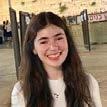
If you had the option, would you want to see into your future? In this week’s parsha, we read about the last part of Yaakov’s life. He assembles his sons, and attempts to tell them about the end of the exile. However the shechina departed from Yaakov, and he was unable to share with his sons what he had seen.
There are two questions here: why did Yaakov want to tell his sons the future and why didn’t Hashem let him?

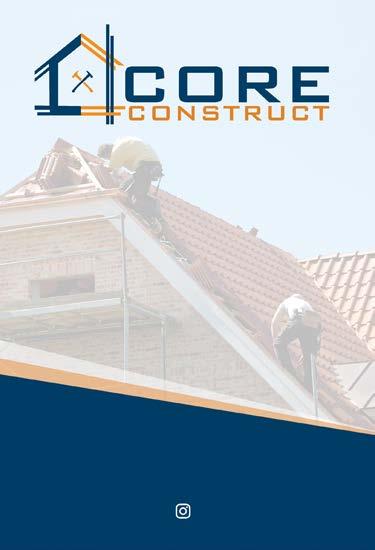
The midrashim say that Yaakov didn’t want to share the exact date of the redemption, rather he wanted to give them hope for the future- to let them know how wonderful the world will be.

So why did Hashem not permit Yaakov to bestow his sons with this knowledge? Yaakov meant well, but the information would eventually have taken away from our ultimate reward. If we had seen a full portrayal of our future, we would obviously have been driven to endure all our struggles, for our own interest. Hashem wanted us to persevere out of love for Him and faith in Him, so our reward will be equally abundant.
We all encounter hardships in our lives, and sometimes we wish we could just see Hashem’s plan. But when we are about to give up, this is exactly when we need to hold on to our belief in Hashem, and He will be there for us, even if we don’t see so right away.

OU ISRAEL CENTER 59
DEAL!!!
parking 2000000 NIS
GOOD INVESTMENT!! In
Baka
In
(0
2450000
–
occupancy
MICHAEL
Baka
parking,
5000000
GOOD
In New TALPIOTSpacious 2 rooms, 50m, recent, Shabbat elevator, terrace, calm, store-room,
- MENDEL 052-8980111 VERY
Bustan
-
a beautiful boutique building –Large 2 room apartment, ground floor
steps), elevator, balcony, parking
NIS - MENDEL 052-8980111 TALPIOT HAYESHENA
In a new project, 4 rooms, 100m, elevator, balcony,
in 2 years, from 3400000 NIS
052- 3202488
- 5 rooms, elevator, quiet street,
Sukkah porch, storage room
NIS MICHAEL 052- 3202488

60 TORAH TIDBITS 1499 / VAYECHI 5783
ENGLISH SPEAKING LAW FIRM




Madar,Adv
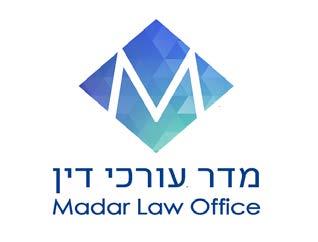
OU ISRAEL CENTER 61
& Wills
Orit
. Family Law and Mediation Divorce, Child support, Custody Inheritance
.
10 Hillel St., Jerusalem | 36 Dam hamkabim st.,
OU ISRAEL CENTER 59 www.ashleywilde.co.il • Curtains & draperies • Designer curtains • Venetian & Woven wood blinds • Blackout, Vertical, Roller, Roman & Pleated shades
Yariv Madar, Adv
Bodily Injuries, Medical Malpractice Civil Litigation
Modiin 02-6255592, 050-3202909 Madar@netvision.net.il



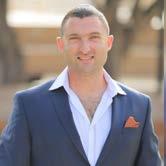









62 TORAH TIDBITS 1499 / VAYECHI 5783 Most Recent Listings in Jerusalem Yitzchak Kowalsky 054-766-0338 Yitzchak@yykrealestate.com www.yykrealestate.com Great Opportunity in Rechavia 2 bedroom Garden Apartment 65 sqm Rare & quiet Full of potential! Immediate occupation! Private land! 3 bedroom 2 full baths Upgraded apt including: Floor heating Central A/C Balcony (not Succa) Fully furnished with appliances! Shabbat elevator Parking & storage Available: immediately! !חמש םירוא גח New Project on Mekor Haim Street Penthouse: 147 sqm +114 sqm terrace Large 5 Bdrms + 13 sqm balcony High end specs Great prices and payment plans We buy your Gold & Silver Personal home service - 30 years experience We also buy silverware, gold & silver coins! Please send me a picture to Whatsapp for free appraisals I pay cash! I will meet you where you want! Customer service! 972-54-219-2428 mail: absaffran@gmail.com Follow Us On Facebook
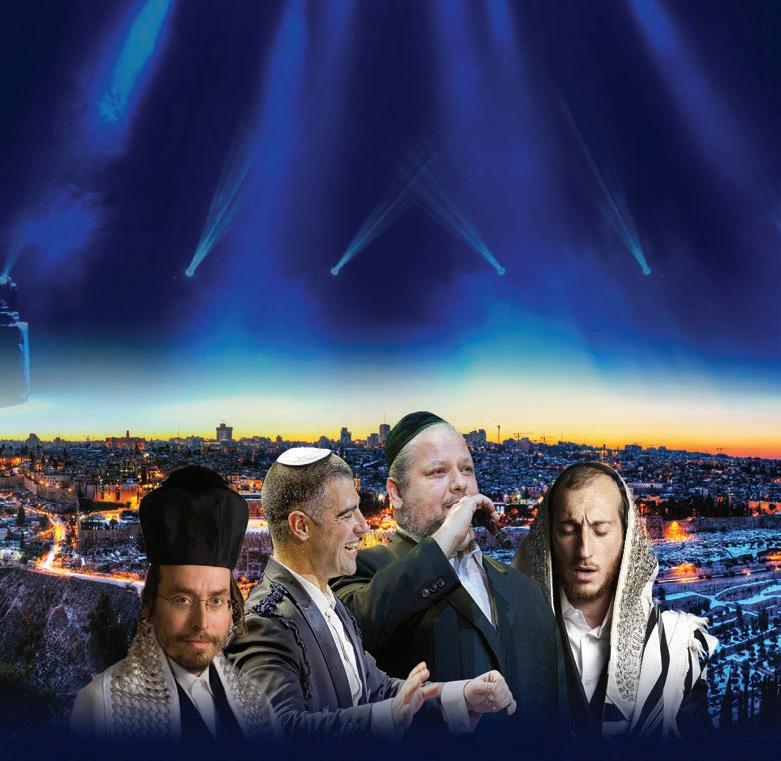


OU ISRAEL CENTER 63
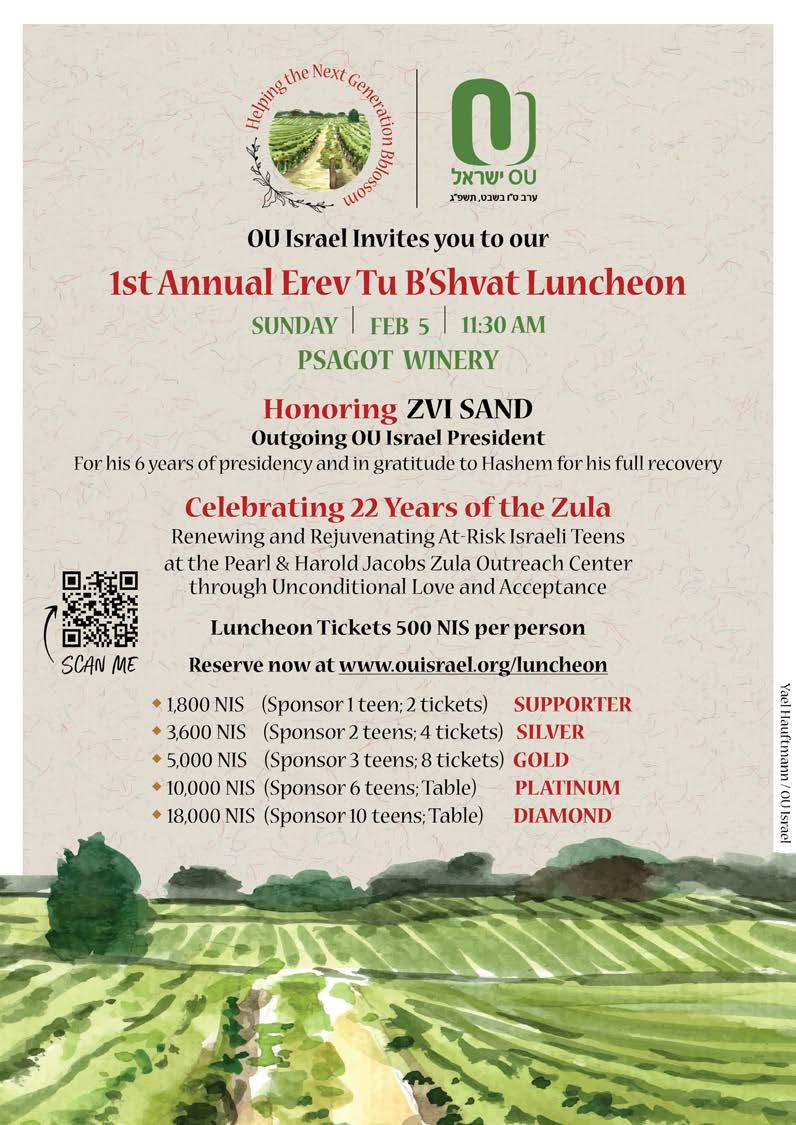






















 OU Executive Vice President
OU Executive Vice President















 RABBI
RABBI









































































































































































